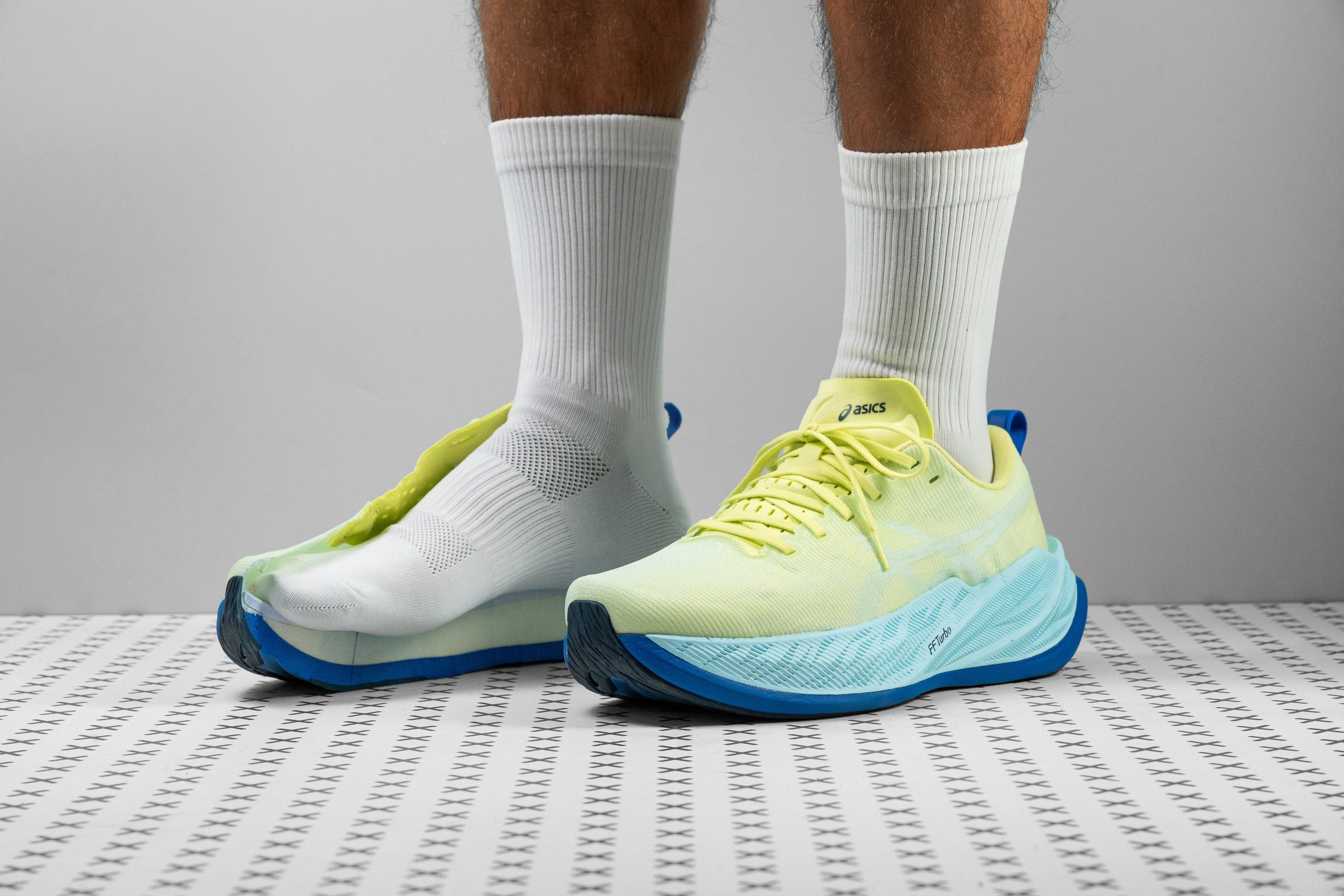Our verdict
Pros
- Extremely lightweight
- Remarkably stable despite its massive height
- Works for both long and short runs
- Delivers a fun, rockered ride
- Handles various paces effectively
- Ideal for runners covering high mileage
- Outstanding durability
- Amazing lockdown
Cons
- $200 for a daily trainer, wow!
- Subpar breathability
- The outsole is a stone trapper
Audience verdict
- Top 4% in road running shoes
- Top 11% in ASICS running shoes
- Top 16% most popular running shoes
Comparison
The most similar running shoes compared
+ + Add a shoe | |||||
|---|---|---|---|---|---|
| Audience score | 92 Superb! | 90 Superb! | 91 Superb! | 90 Superb! | |
| Price | $200 | $200 | $180 | $180 | |
| Pace | Daily runningTempo | Daily runningTempo | Daily running | Daily running | |
| Shock absorption | High | Moderate | High | High | |
| Energy return | High | High | Moderate | Moderate | |
| Traction | Moderate | High | High | High | |
| Arch support | Neutral | Neutral | Neutral | Neutral | |
| Weight lab Weight brand | 8.6 oz / 244g 8.4 oz / 239g | 8.9 oz / 252g 8.8 oz / 250g | 10.3 oz / 291g 10.3 oz / 292g | 9.6 oz / 272g 9.7 oz / 275g | |
| Lightweight | ✓ | ✗ | ✗ | ✗ | |
| Drop lab Drop brand | 7.9 mm 8.0 mm | 8.2 mm 8.0 mm | 9.6 mm 8.0 mm | 9.4 mm 6.0 mm | |
| Strike pattern | Mid/forefoot | HeelMid/forefoot | HeelMid/forefoot | HeelMid/forefoot | |
| Size | True to size | True to size | True to size | True to size | |
| Midsole softness | Balanced | Soft | Soft | Balanced | |
| Difference in midsole softness in cold | Small | Small | Big | Small | |
| Toebox durability | Bad | Good | Decent | Decent | |
| Heel padding durability | Decent | Good | Decent | Bad | |
| Outsole durability | Good | Good | Decent | Good | |
| Breathability | Moderate | Breathable | Moderate | Moderate | |
| Width / fit | Narrow | Medium | Medium | Medium | |
| Toebox width | Medium | Medium | Medium | Medium | |
| Stiffness | Stiff | Stiff | Stiff | Stiff | |
| Torsional rigidity | Stiff | Stiff | Stiff | Stiff | |
| Heel counter stiffness | Moderate | Moderate | Moderate | Moderate | |
| Rocker | ✓ | ✓ | ✓ | ✓ | |
| Heel lab Heel brand | 42.7 mm 45.5 mm | 42.8 mm 45.0 mm | 42.9 mm 47.0 mm | 39.9 mm 37.0 mm | |
| Forefoot lab Forefoot brand | 34.8 mm 37.5 mm | 34.6 mm 37.0 mm | 33.3 mm 39.0 mm | 30.5 mm 31.0 mm | |
| Widths available | NormalWide | NormalWide | Normal | Normal | |
| Orthotic friendly | ✓ | ✓ | ✓ | ✓ | |
| Season | All seasons | SummerAll seasons | All seasons | All seasons | |
| Removable insole | ✓ | ✓ | ✓ | ✓ | |
| Ranking | #25 Top 4% | #79 Top 21% | #31 Top 9% | #45 Top 12% | |
| Popularity | #107 Top 16% | #25 Top 7% | #159 Top 42% | #191 Top 50% |
Who should buy
Based on our experience testing the shoe, the ASICS Superblast is an ideal choice for:
- Runners seeking a cushioned yet stable running shoe for clocking in countless miles.
- Heavier individuals in search of a maximal training shoe capable of handling all paces.
- Those wanting a single shoe covering everything from daily training to racing distances ranging from a 5K to a full marathon.
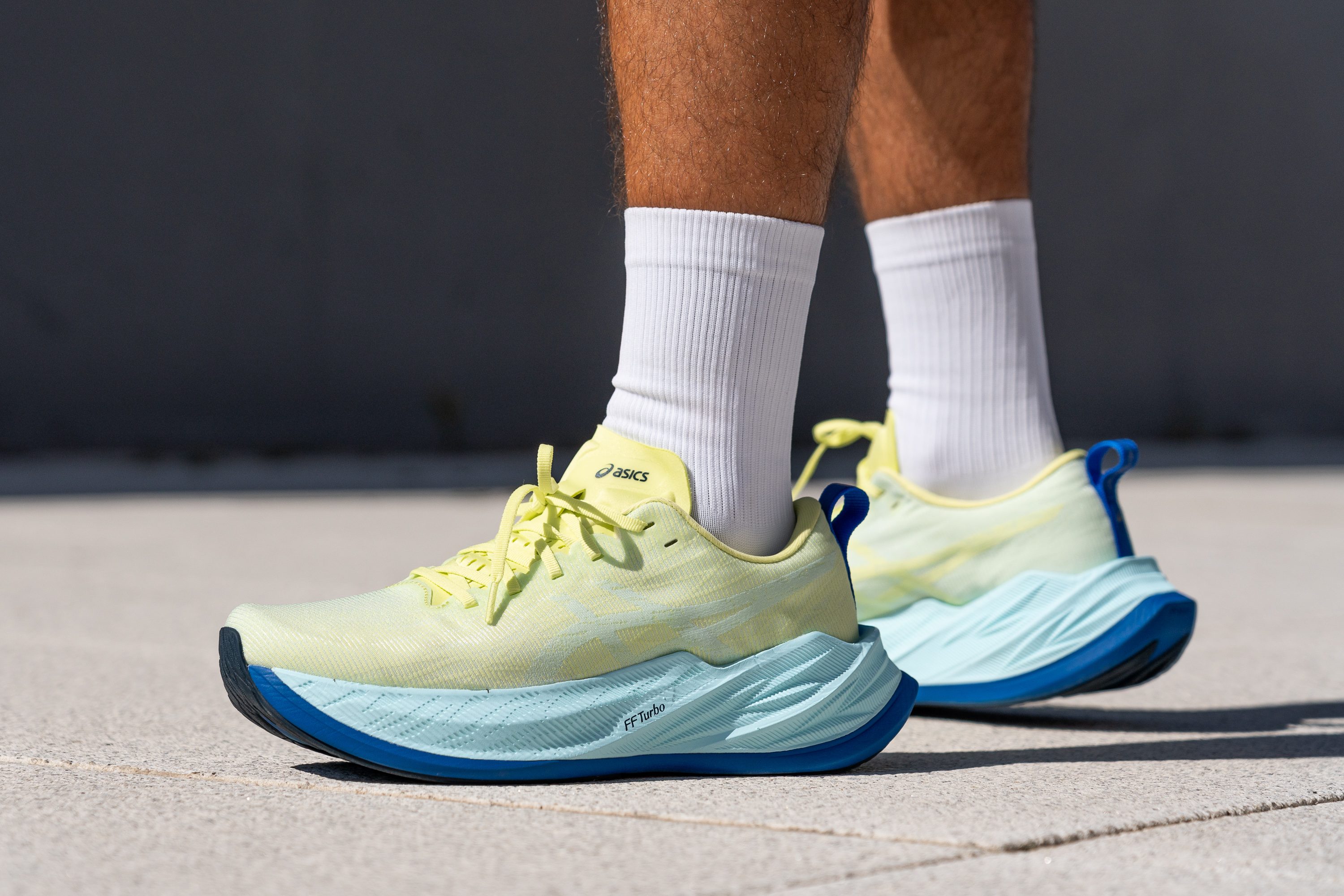
Who should NOT buy
The main issue we found with the Superblast isn't a feature but rather its cost. Priced at $200, it stands as the priciest daily training shoe on the market. We understand that many runners might lean towards a more budget-friendly option.
Within the ASICS lineup, the Novablast 3 presents similar features as the Superblast but at a more affordable price point.
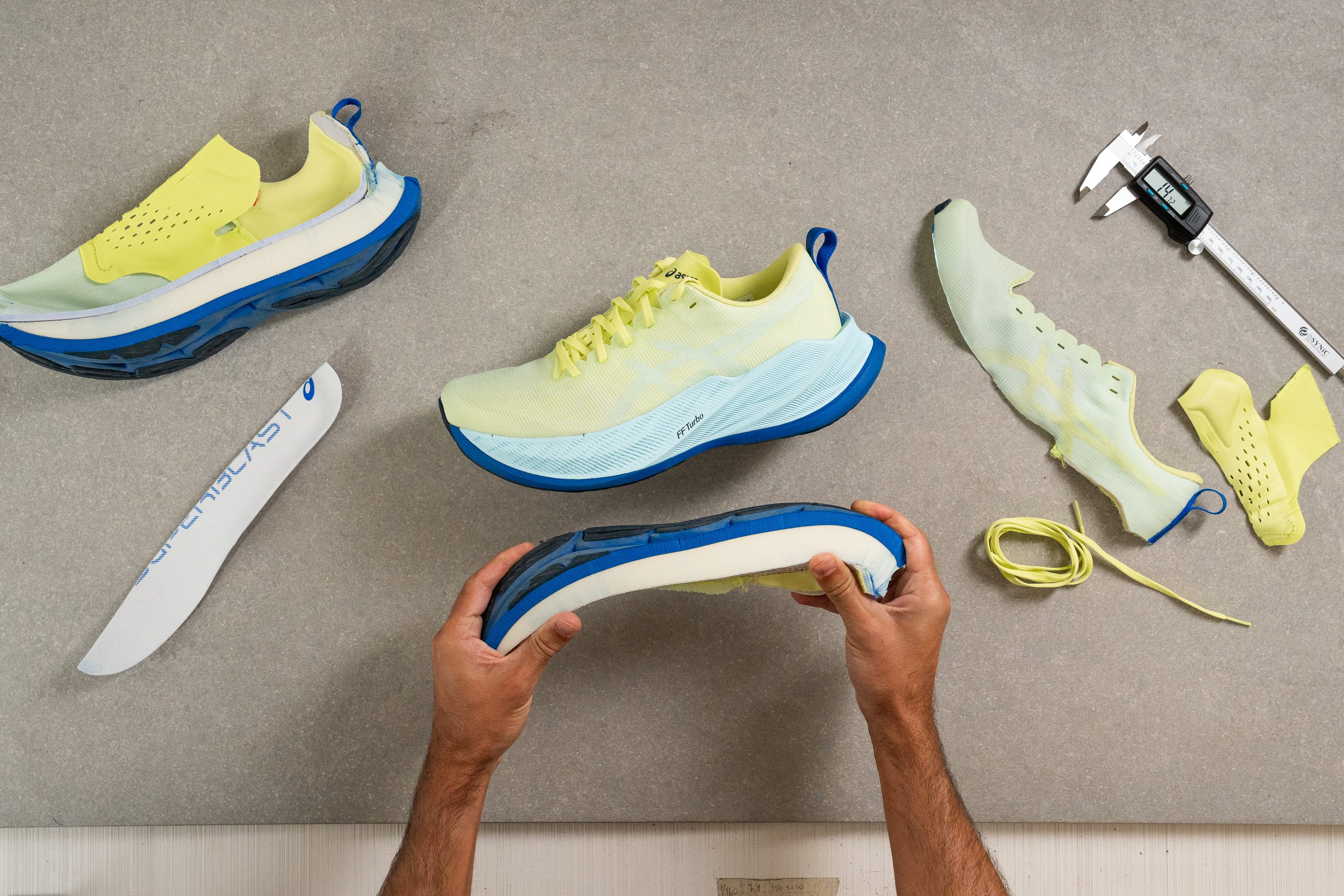
Moreover, this shoe isn't tailored for those who appreciate a plush-running sensation. If that describes your preference, we recommend looking into the Hoka Mach X. We discovered that it also boasts a dual-foam setup but provides a softer ride in a maximalist package.
Cushioning
Shock absorption
Thanks to its oversized midsole, the Superblast delivers ample shock absorption for any distance, making it a compelling choice even for road ultra events. We measured 137 SA in the heel and a crazy high 134 SA in the forefoot.
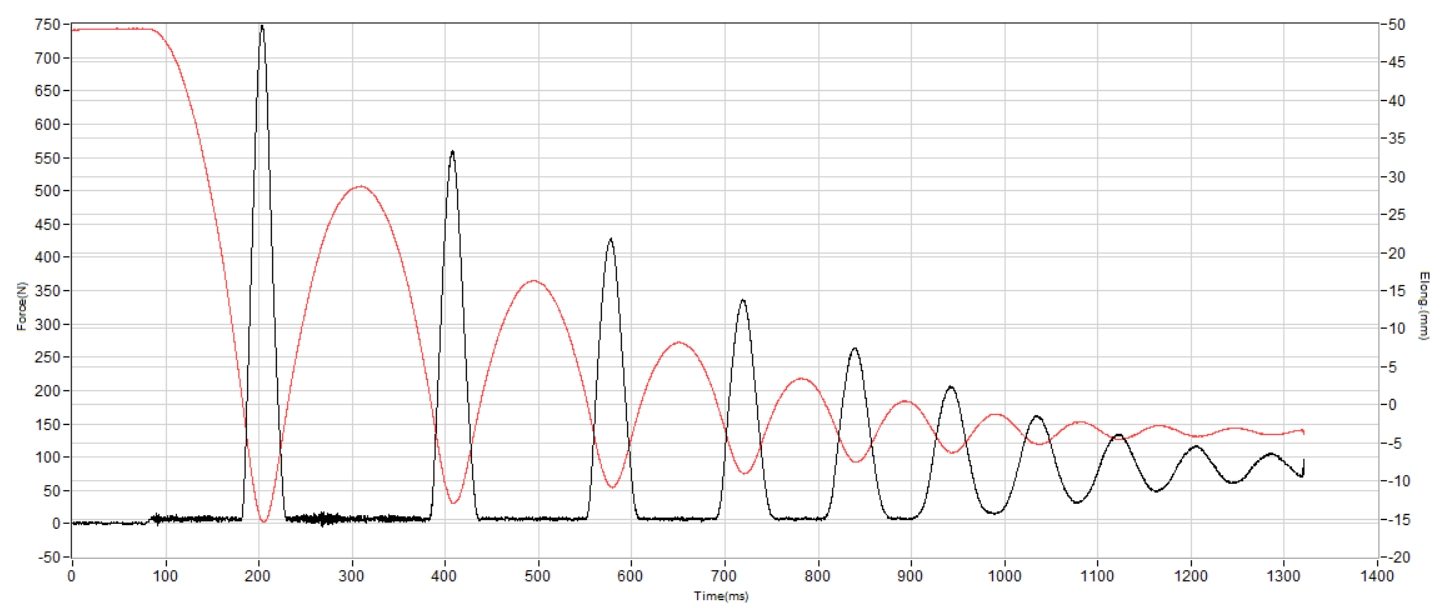
| Superblast | 137 SA |
| Average | 130 SA |
Energy return
One of the standout elements of the Superblast is the use of FF Turbo foam in a dual-layer setup. FF Turbo offers higher energy return than the Novablast lineup, peaking at 65.1% in our ASTM F1976 test. While not exceptional due to the EVA layer underneath, it still ranks as a solid result.
| Superblast | 65.1% |
| Average | 58.6% |
Heel stack
The Superblast boasts a heel stack height of 42.7 mm. This exceeds the 40-mm race-day legal limit set by World Athletics, making it one of the tallest shoes we've ever measured in our lab.
When we mentioned its impressive lightness relative to its height, we truly meant it. Because of this, the shoe offers an exceptional level of cushioning.
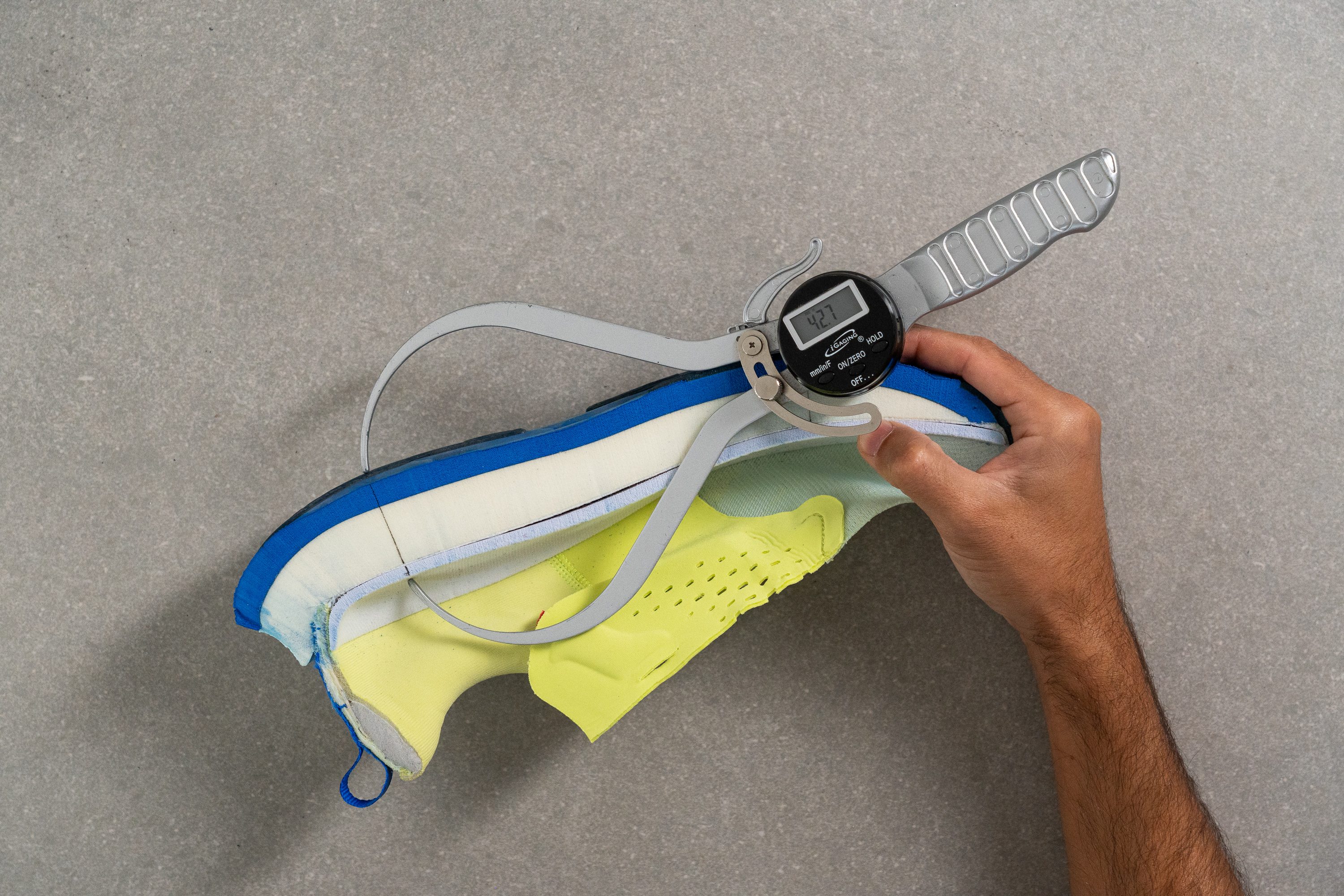
| Superblast | 42.7 mm |
| Average | 34.8 mm |
Forefoot stack
In the forefoot, we measured 34.8 mm—more than many shoes offer... in their heel! This speaks volumes about the shoe's ultra-cushioned design.
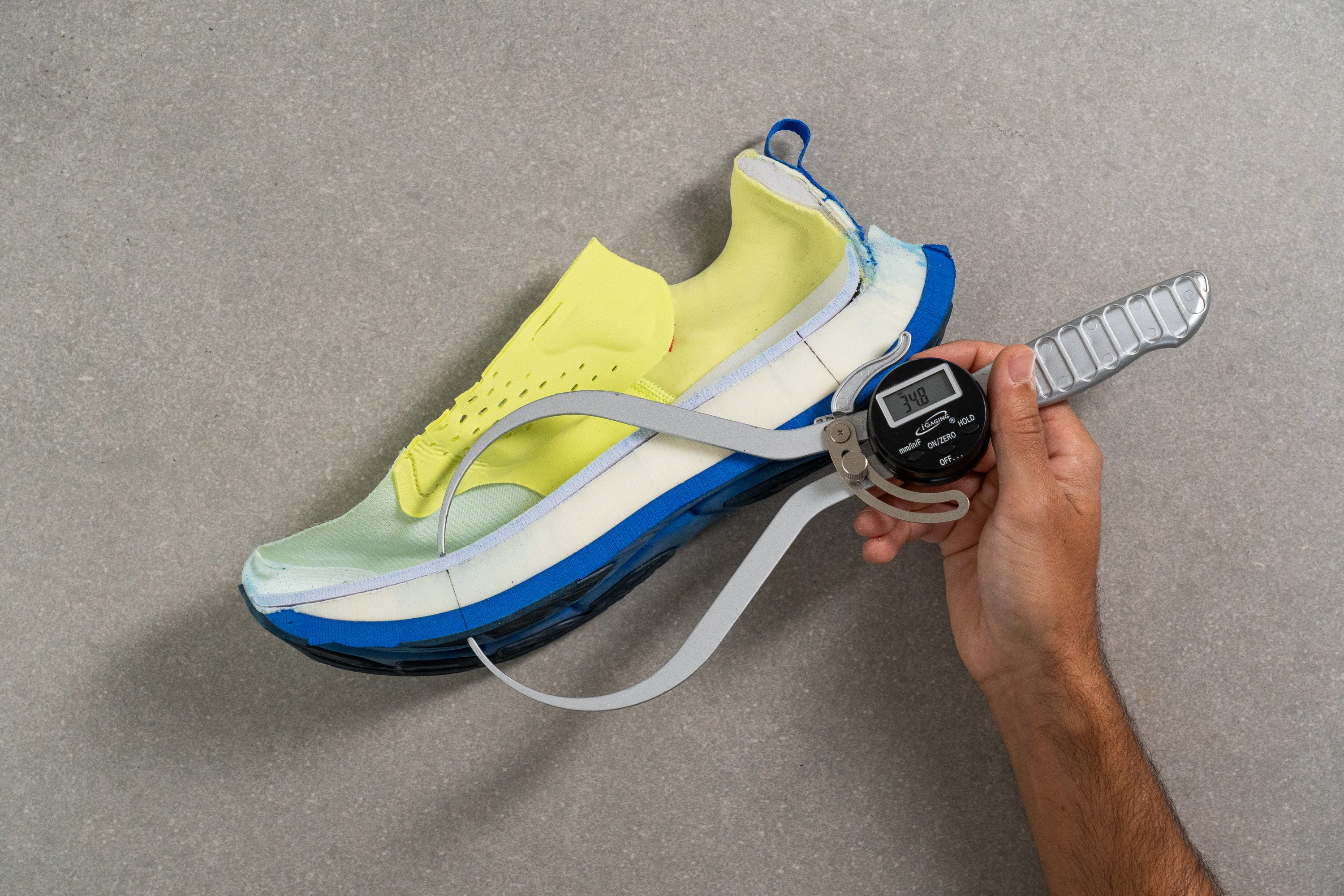
| Superblast | 34.8 mm |
| Average | 26.2 mm |
Drop
ASICS consistently shines as a brand that gets the heel-to-toe drop figures spot on. In the RunRepeat Lab, we truly value this precision, especially when many other running shoe manufacturers often miss the mark, leading to confusion and injuries for runners.
The Superblast boasts an official heel-to-toe drop of 8 mm. Impressively, our measurements came in at a near-perfect 7.9 mm—a mere 0.1 mm deviation.
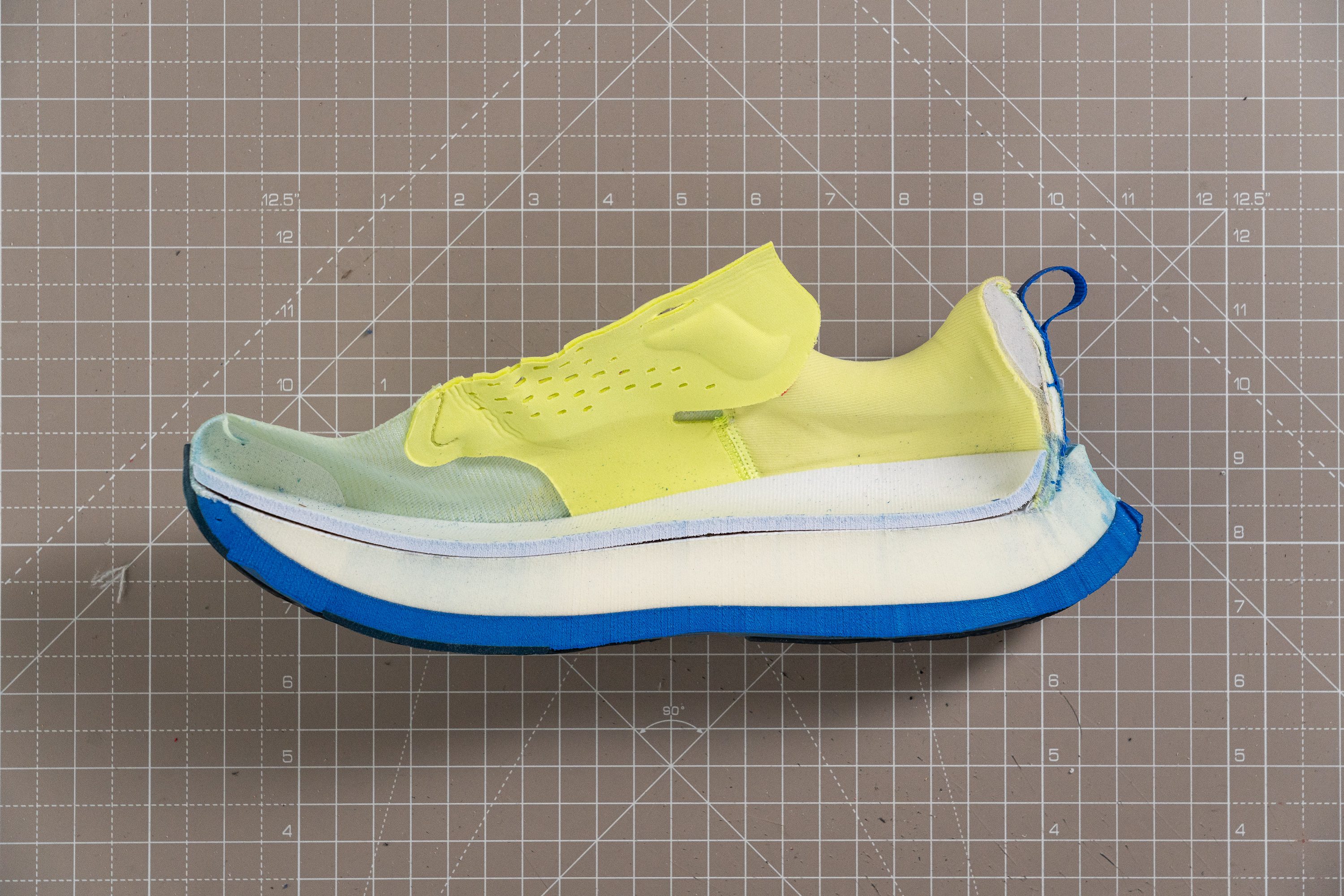
| Superblast | 7.9 mm |
| Average | 8.6 mm |
Midsole softness
UpdatedOver the past two-to-three years, we've been lab-testing shoes that merge cloud-like foam with significant stack heights, delivering a soft ride. However, the Superblast (43.0 AC) doesn't fit that mold. Its PEBA-based FF Turbo foam offers a firmer feel, similar to what we discovered in the Metaspeed Sky+.
If you're on the hunt for a shoe with a plush ride, this might not be the one. We'd recommend giving the Nike Invincible 3 a look instead.
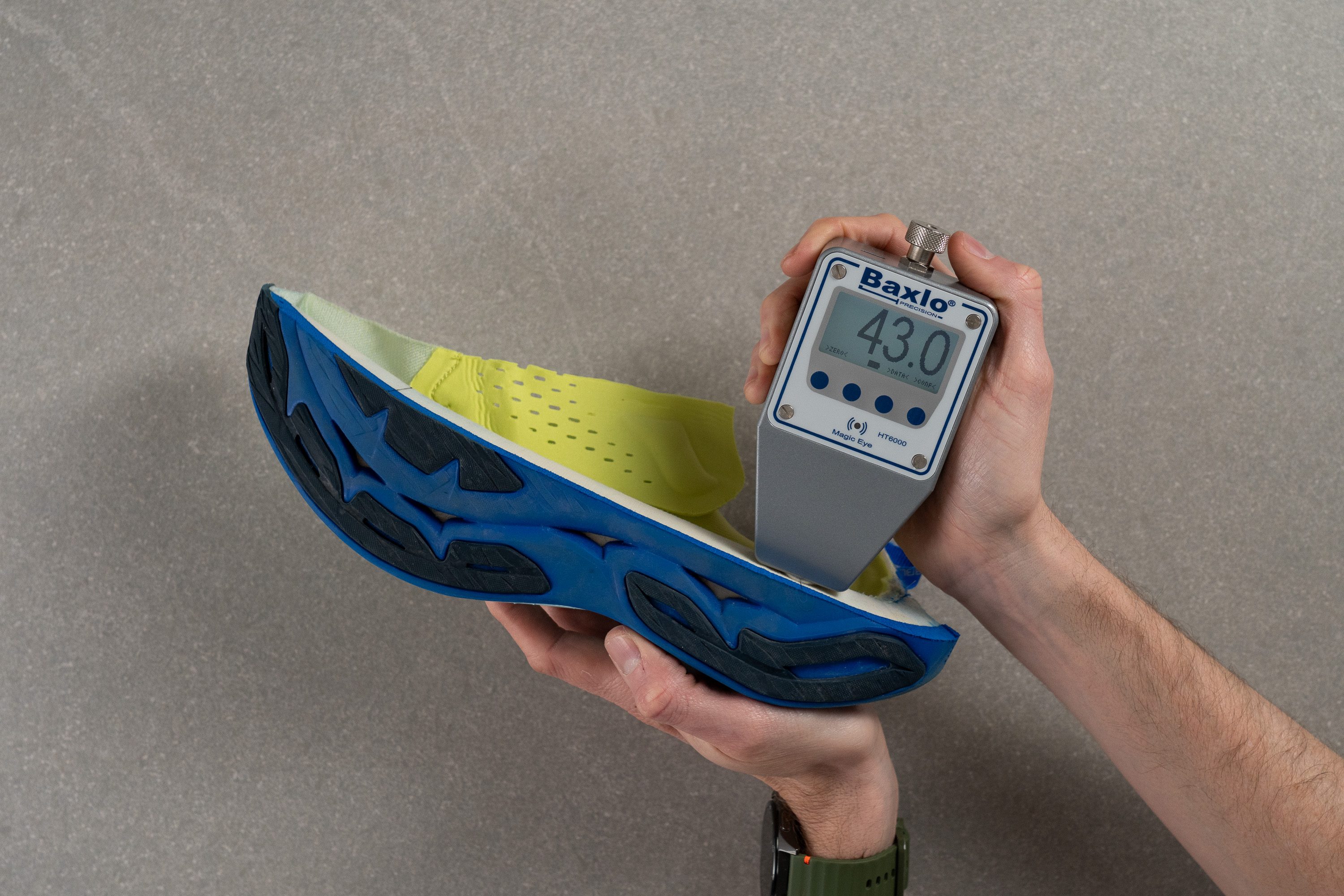
| Superblast | 43.0 AC |
| Average | 36.3 AC |
Secondary foam
UpdatedASICS also knew that using just the FF Turbo midsole might be too firm for everyday runs. So they integrated a layer of FF Blast+, a plush foam, just below the firmer FF Turbo. This layer, being softer at 37.9 AC, enhances comfort during easy or moderate runs.
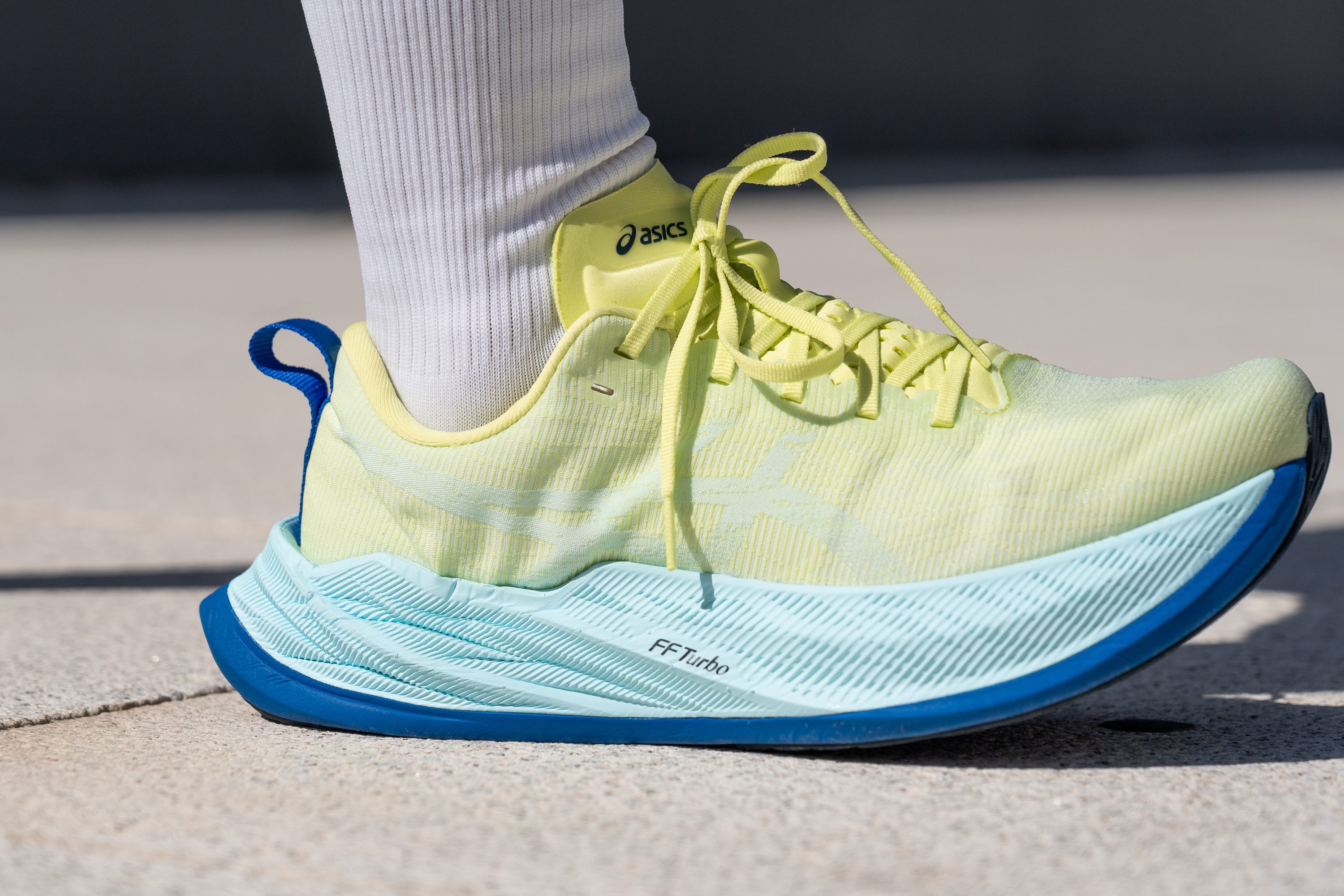
The softer FF Blast+ (dark blue) is the initial layer to make contact with the ground, while the firmer FF Turbo (light blue) provides world-class energy return with every step in this dual-foam configuration.
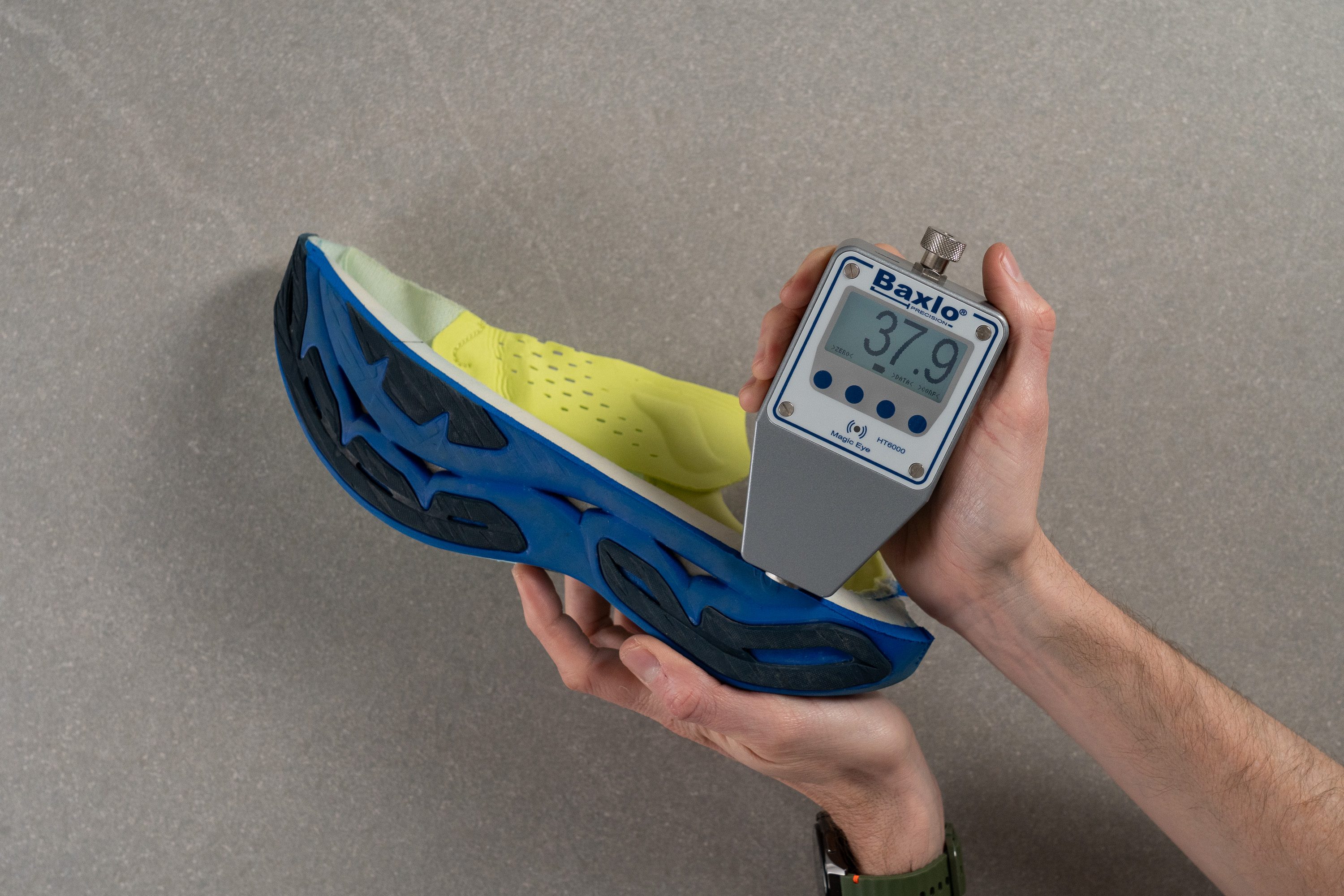
| Superblast | 37.9 AC |
| Average | 39.1 AC |
Size and fit
Size
ASICS Superblast fits true to size (64 votes).
Internal length
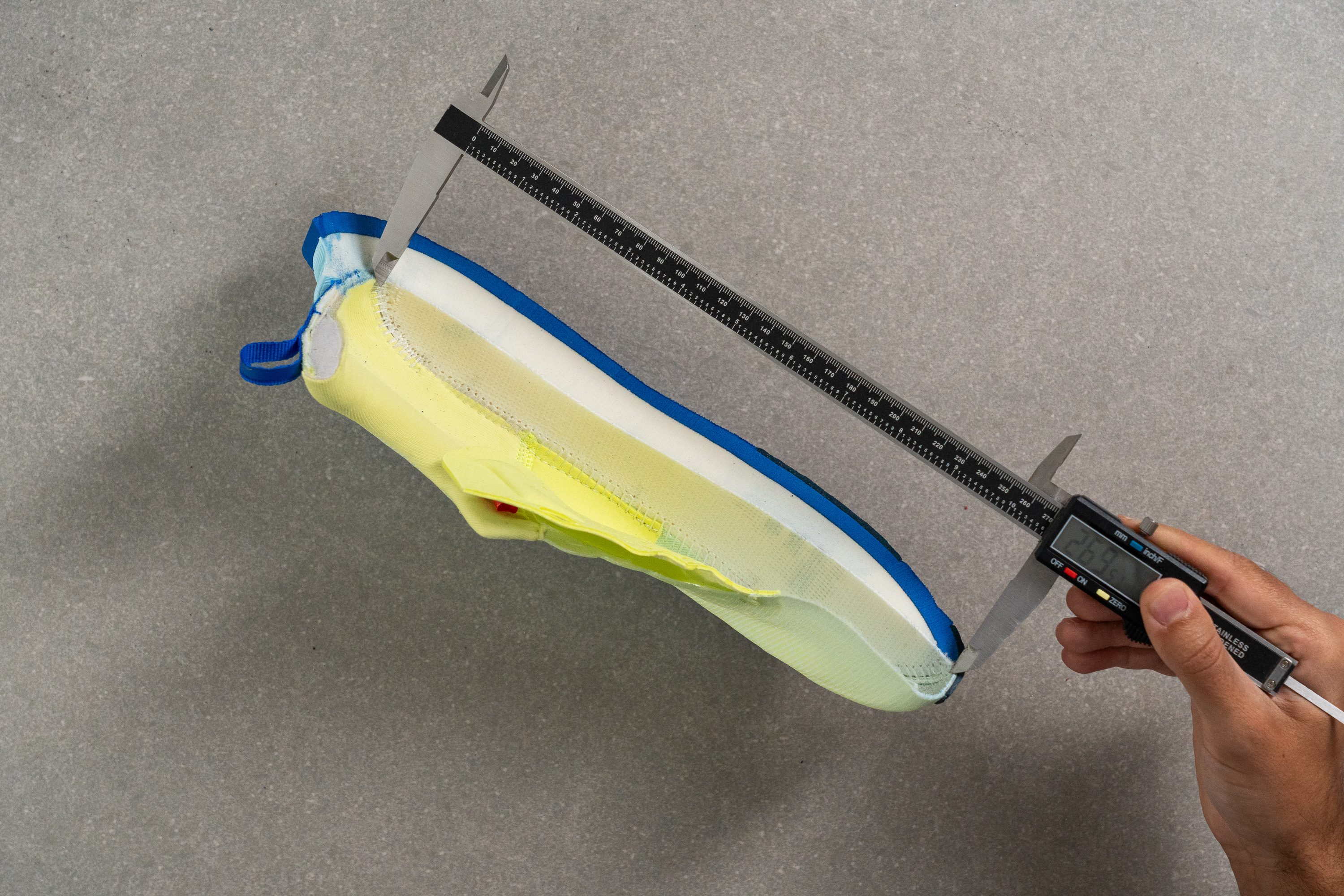
| Superblast | 269.5 mm |
| Average | 269.4 mm |
Toebox width - widest part
While the wide midsole might suggest a wide toebox, we found that it's quite the contrary. ASICS cleverly enhances stability by combining a moderately narrow upper with the broad platform, but the price to pay is the reduced real estate inside the shoe.
At the widest part, the upper only measures 97.5 mm.
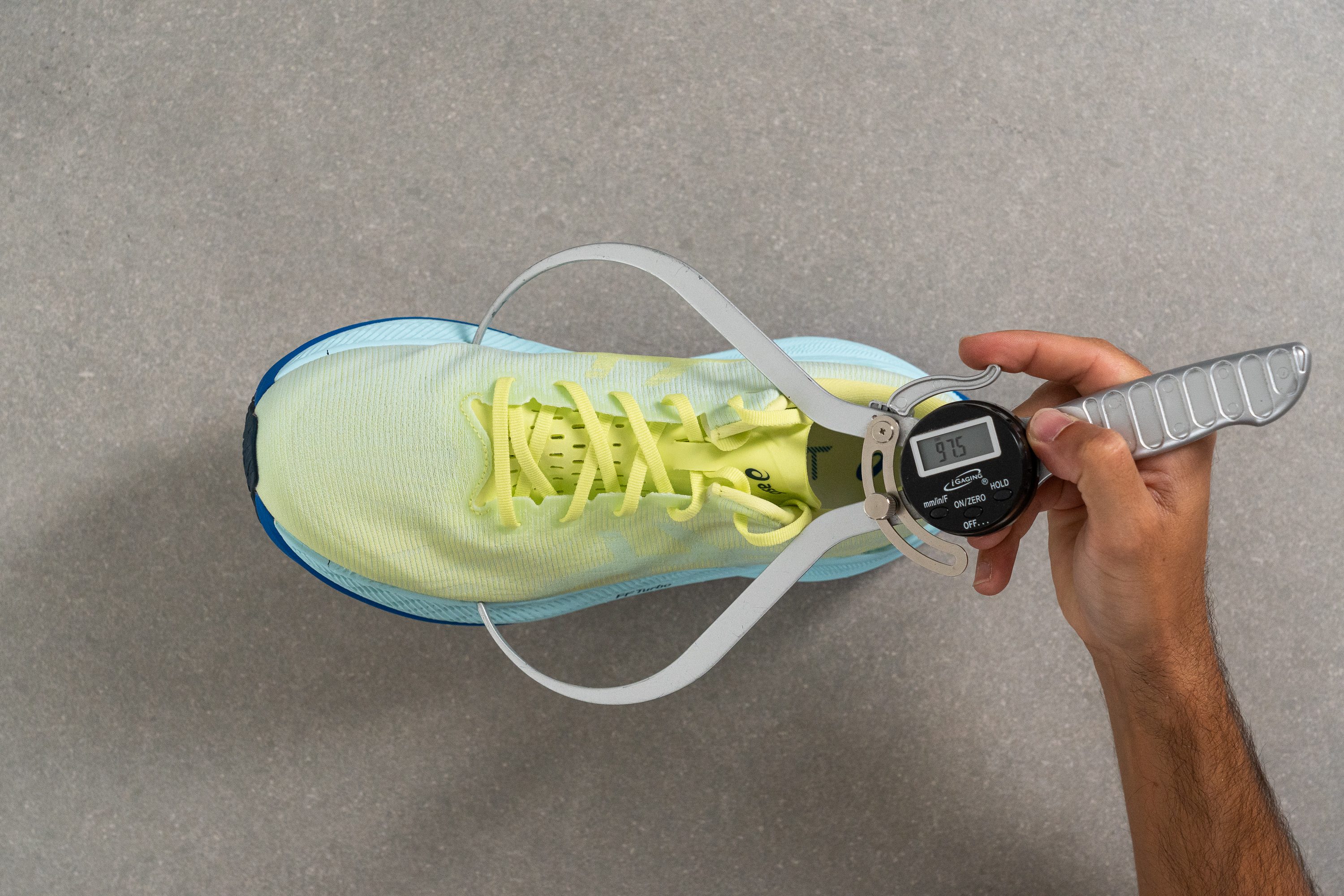
This test follows an older methodology, which is why you don't see recently tested shoes in the chart. Results from different methodologies can not be compared.
| Superblast | 97.5 mm |
| Average | 98.5 mm |
Toebox width - big toe
The width in the big toe area is a standard 77.0 mm. Since the shoe isn't available in wide sizes, men with wider feet might consider sizing up. However, for women, this might not be necessary.
This is a unisex shoe, and all standard sizes are a D width, which equates to a wide size for women.
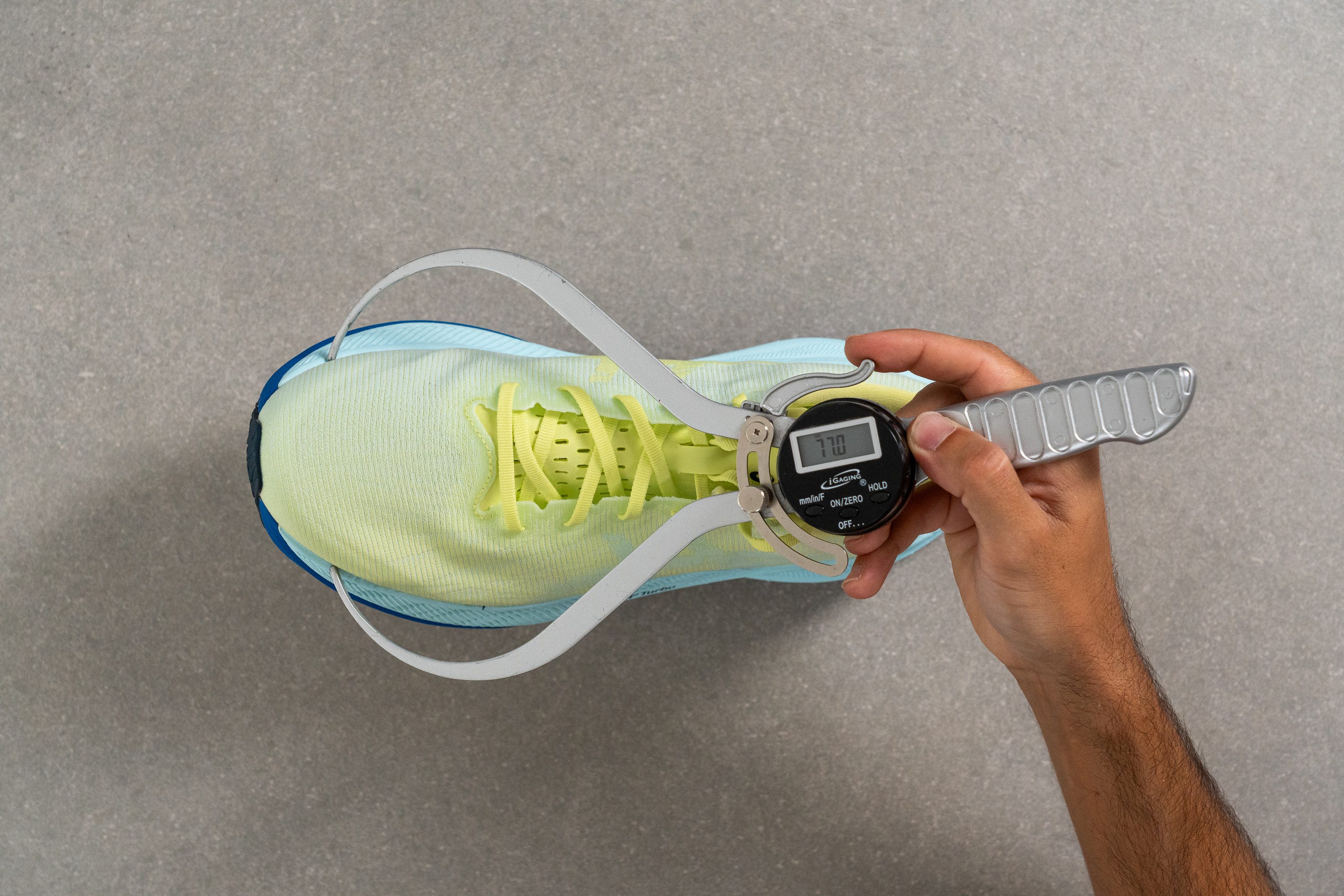
This test follows an older methodology, which is why you don't see recently tested shoes in the chart. Results from different methodologies can not be compared.
| Superblast | 77.0 mm |
| Average | 78.4 mm |
Traction / Grip
Traction test
ASICS clearly compromised wet-road grip by skipping the use of ASICSGRIP in this model. Instead, it features AHARPLUS.
When we tested forefoot friction on a wet concrete slab at a 7-degree angle with 500N of force, the Superblast scored just 0.33. It performs well on dry roads but lacks reliability on wet asphalt or slick sidewalks.
| Superblast | 0.33 |
| Average | 0.49 |
Outsole design
The ASICS Superblast features a large portion of exposed foam with multiple stone-trapping holes, all aimed at cutting down weight.
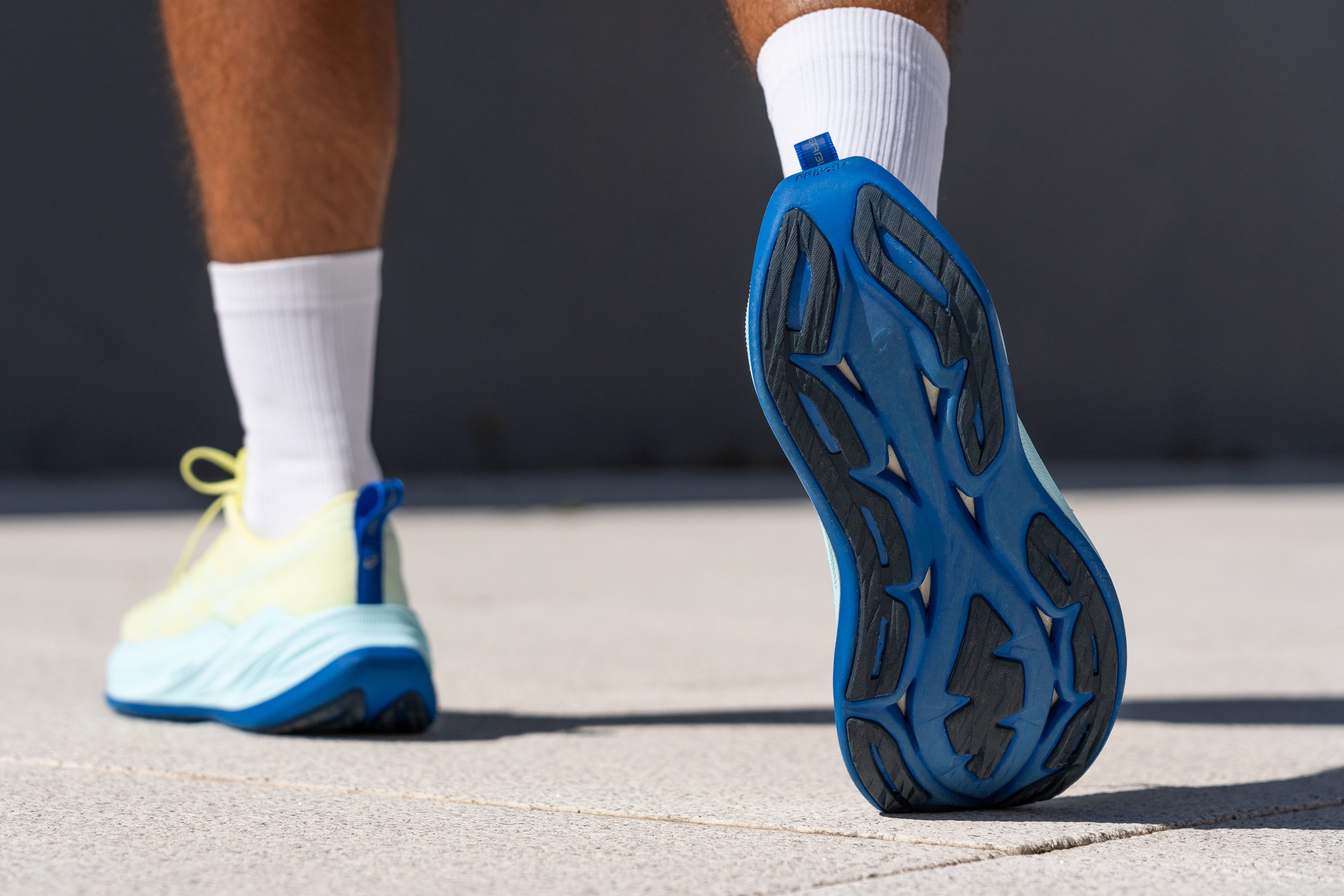
Flexibility / Stiffness
In our lab's 30-degree bend test, we needed 19.6N of force to bend the shoe—similar to what we’ve recorded in carbon-plated models. However, in this case, the stiffness is due to the ultra-thick stack height.
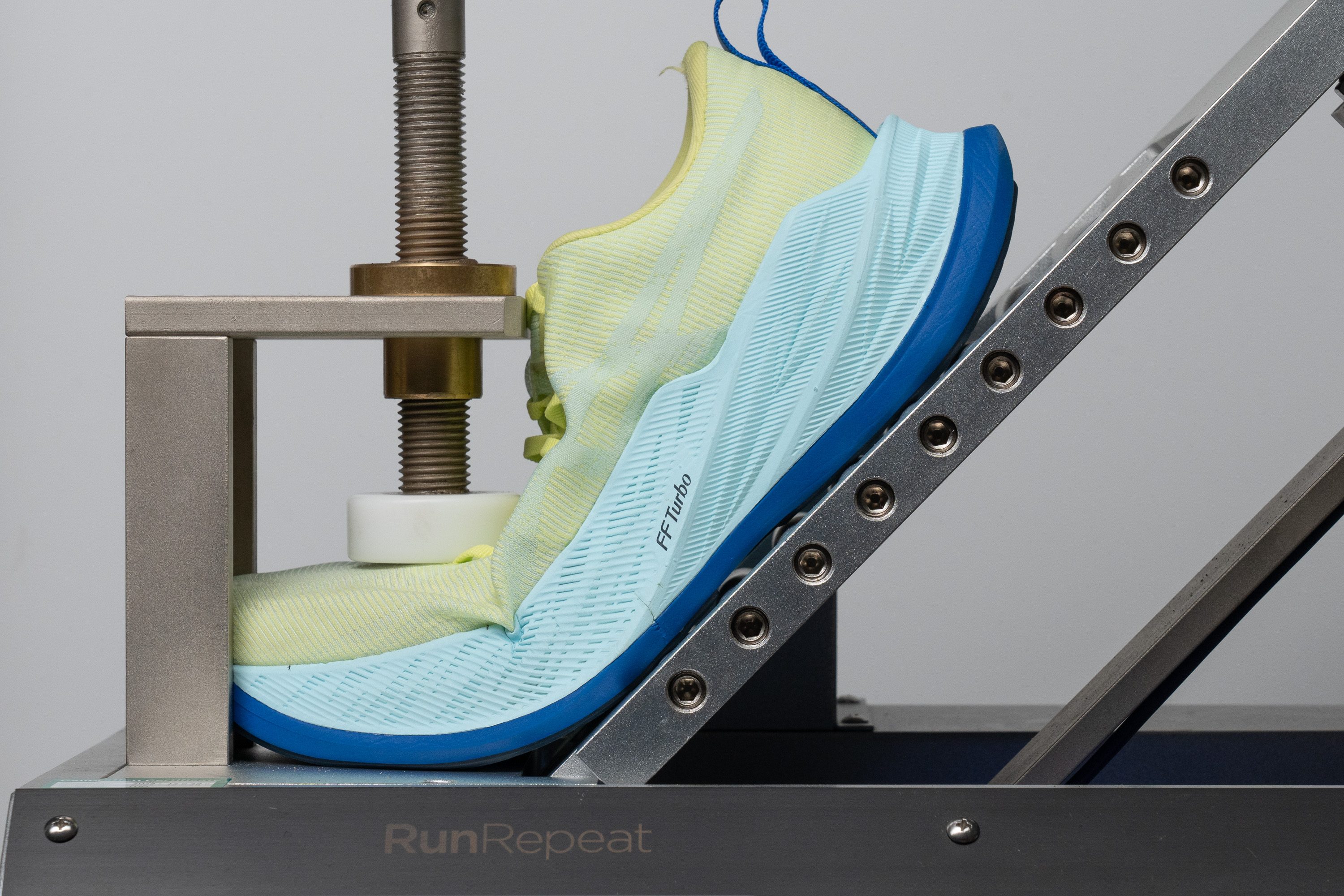
| Superblast | 19.6N |
| Average | 15.4N |
Stiffness in cold (%)
After placing the shoe in the freezer for 20 minutes to mimic cold-weather conditions, we conducted the test again in our lab.
We measured a force of 34.9N, showing results that were nearly identical.
That's only a 19% increase, a truly impressive result. This further highlights the outstanding performance of PEBA foams, such as FF Turbo, especially in cold conditions.
| Superblast | 19% |
| Average | 33% |
Weight
Weighing in at a mere 8.6 oz (244g), in our humble opinion, ASICS nailed it. Given its impressive stack height, one would assume it would tip the scales closer to 10 oz, like the New Balance FuelCell SuperComp Trainer.
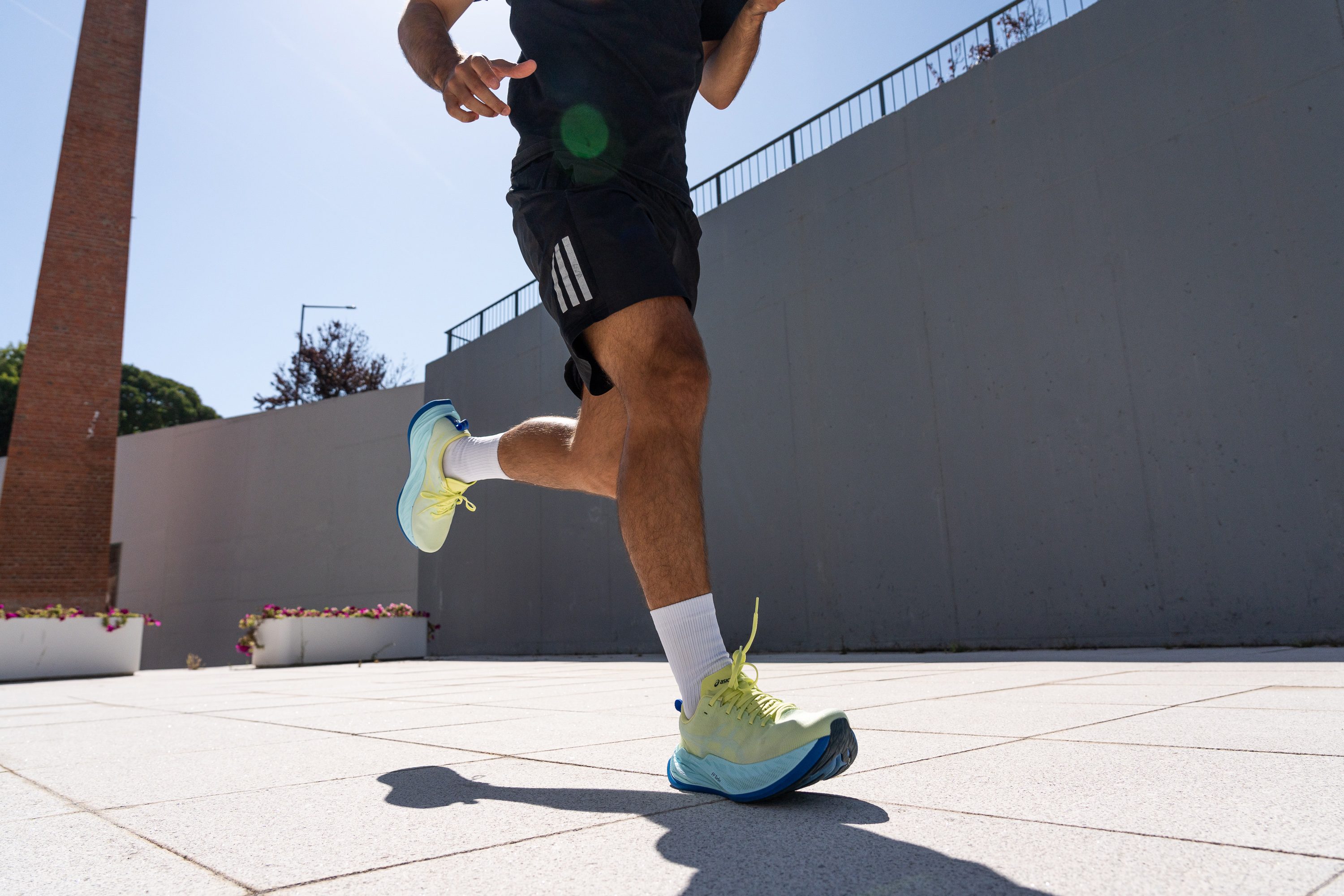
Yet, ASICS impressively managed to keep it under 9 oz, rivaling the weight of racing shoes—all in a training package.
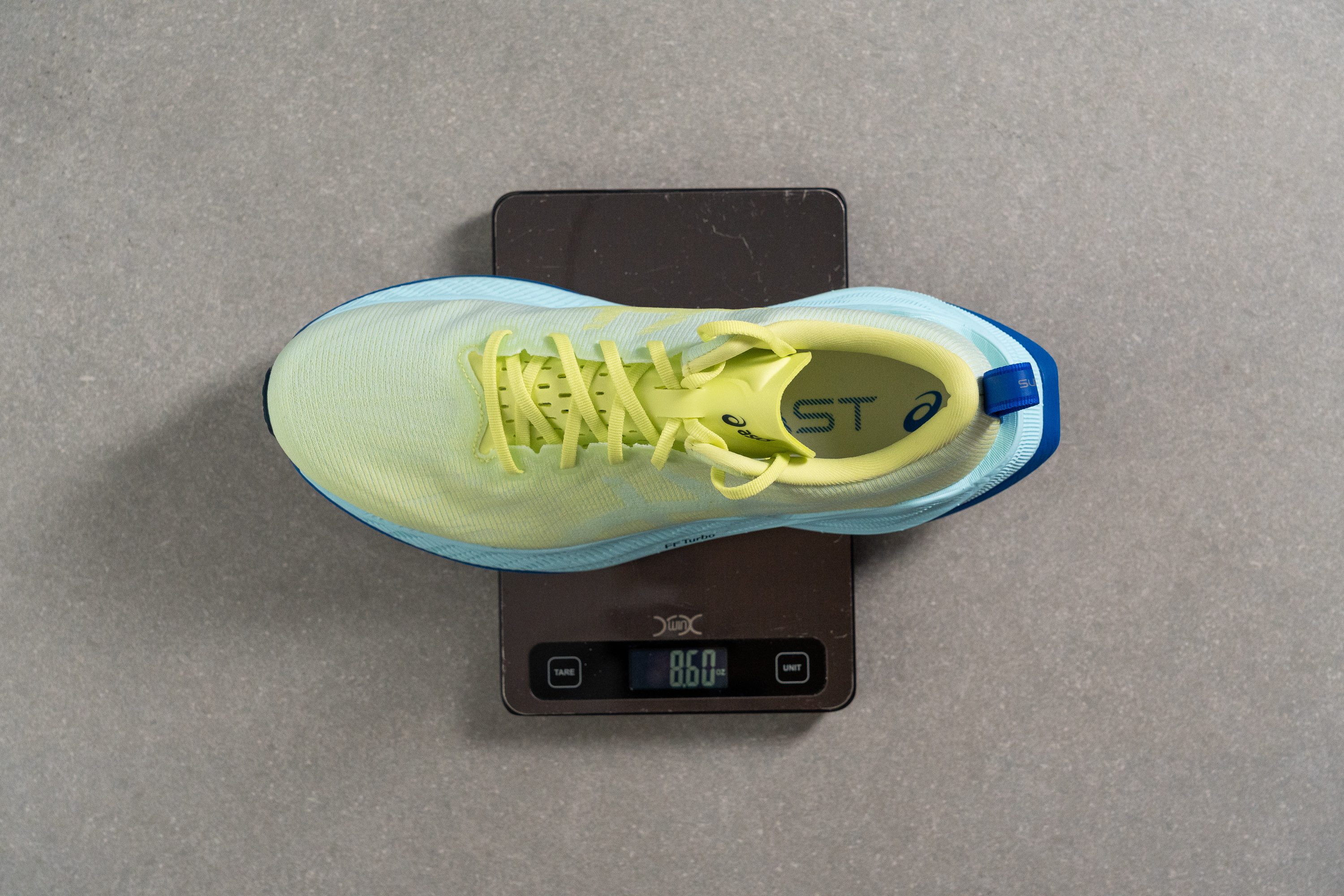
| Superblast | 8.6 oz (244g) |
| Average | 9.3 oz (264g) |
Breathability
Let's begin with the biggest design flaw we found with the Superblast. Because of its $200 price tag—which still seems crazy for a training shoe—we anticipated excellent breathability. Sadly, we didn't get that.
In our lab, we conducted our state-of-the-art smoke test on it. Unfortunately, We could only give it a run-of-the-mill 3/5 score for breathability. This is below average, and to be honest, it let us down.
During the light test, we saw the shoe's upper structure. It's reinforced on the medial side for added stability. This reinforcement hinders breathability. However, we were surprised because the light easily passed through the engineered mesh in the toebox, so we expected more airflow.
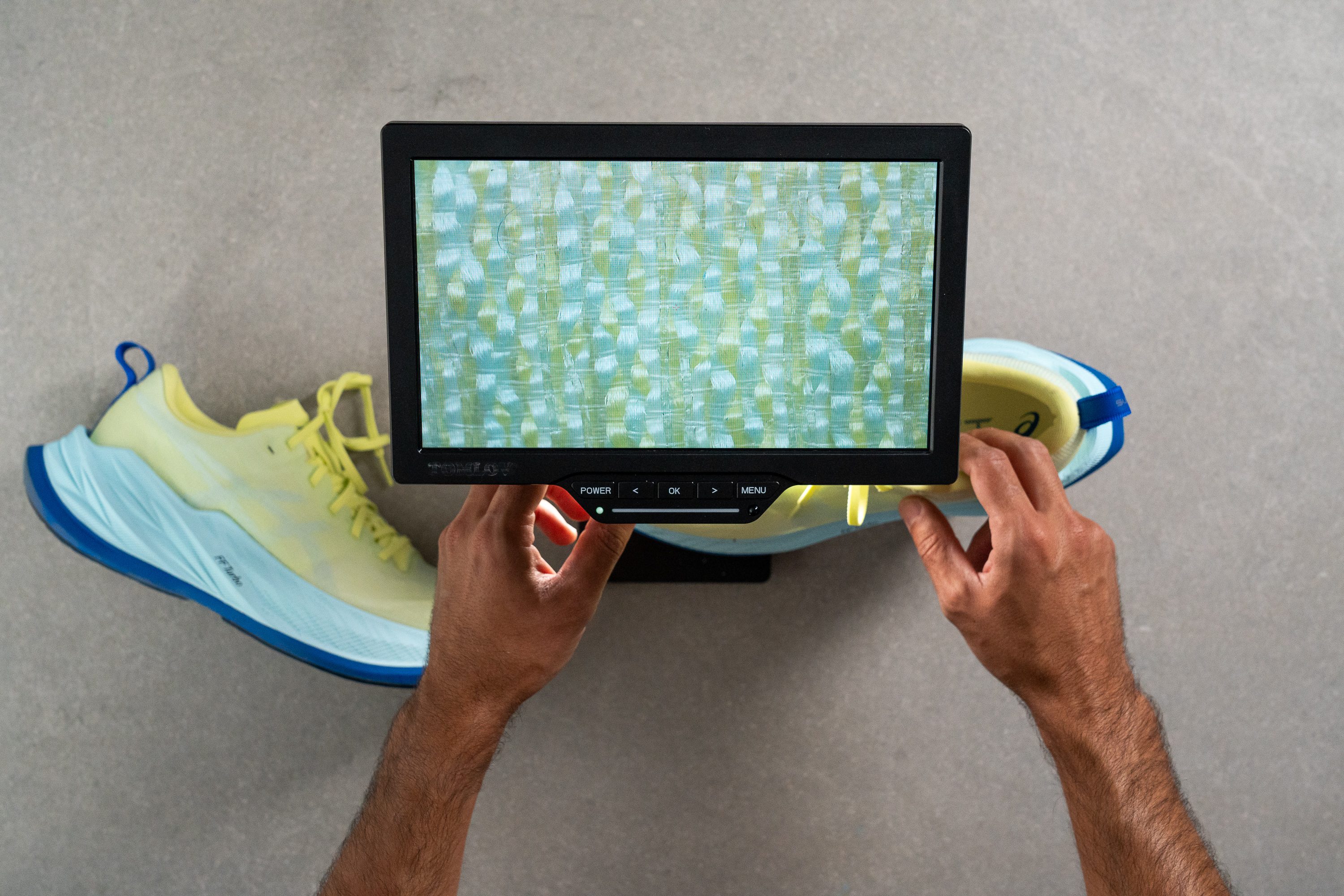
Seeking more answers, we turned to our microscope to understand the poor airflow of the Superblast. And the reason is that there simply isn't any space for air to circulate.
We hope ASICS takes our findings to heart and makes improvements in the next version—this lack of breathability is the shoe's biggest downside.
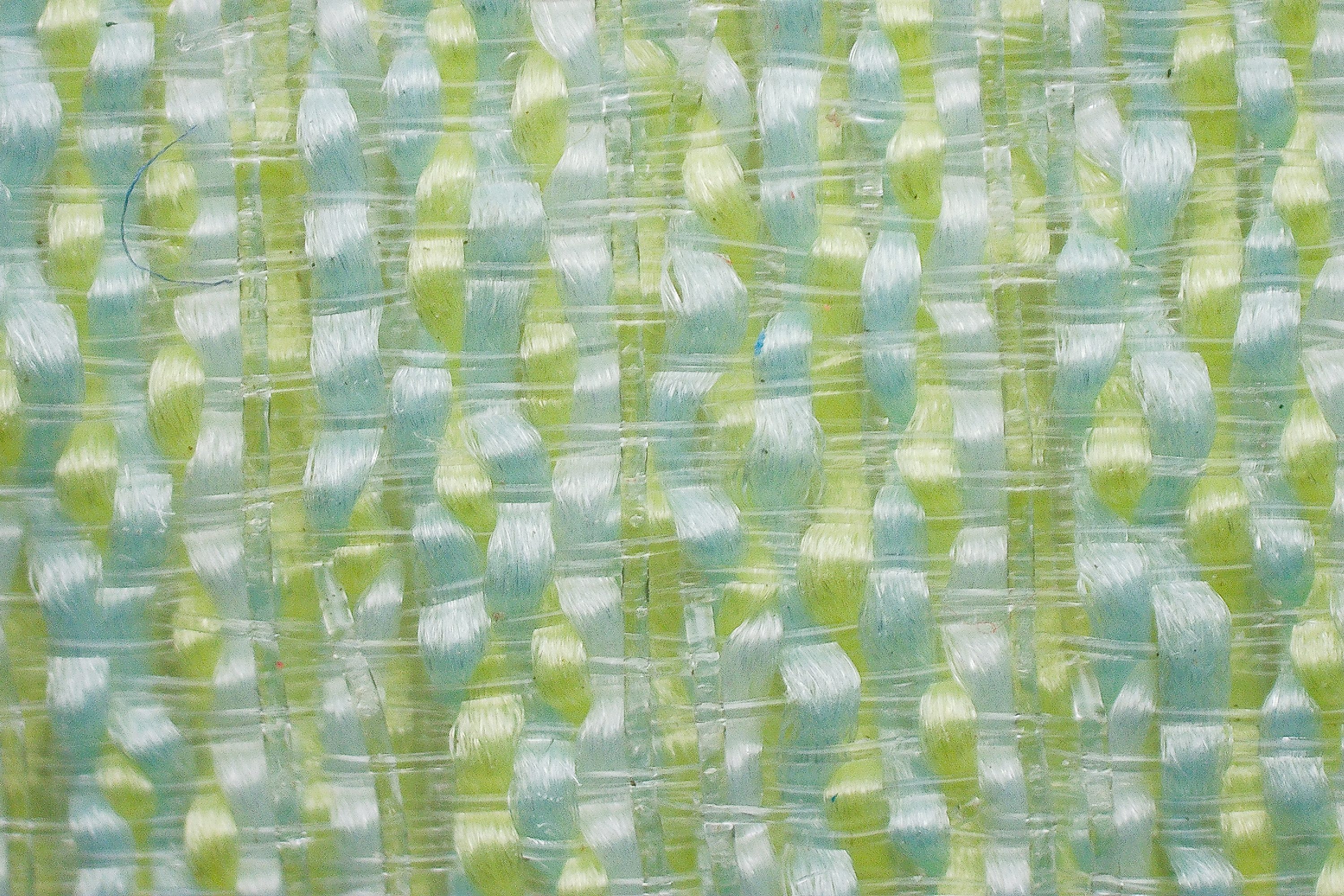
Simply put, these shoes might not be ideal for hot summer runs. But for other seasons, they're more than suitable.
The reduced airflow can actually be beneficial in colder months, given the shoe's thick padding, particularly around the heel.
| Superblast | 3 |
| Average | 3.7 |
Stability
Lateral stability test
Now, let's dive into the most captivating aspect of the Superblast. With a stack height north of 40 mm, most wouldn't predict stability. But to our surprise, we found that it's remarkably stable!
In upcoming tests, we'll shed light on how ASICS achieved this seemingly unattainable feat.
Torsional rigidity
Although this shoe lacks a plate, we rated it 5/5 in our torsional rigidity test—a score typically reserved for carbon-plated shoes.
We discovered that this is largely due to the substantial and firm FF Turbo foam. It's clear that ASICS designed the shoe with this intention. It's not missing a plate; it simply doesn't require one!
| Superblast | 5 |
| Average | 3.5 |
Heel counter stiffness
We found that the heel counter has a bit more structure than most daily trainers, but it remains flexible and comfy. In our assessments, we gave it a 3/5 rating.
| Superblast | 3 |
| Average | 2.9 |
Midsole width - forefoot
The standout feature that bolsters stability is the impressively broad midsole. Measuring an out-of-this-world 121.8 mm, it ranks among the widest shoes we've assessed in our lab.
And it's truly remarkable how ASICS managed to maintain a weight under 9 oz for such a substantial platform.
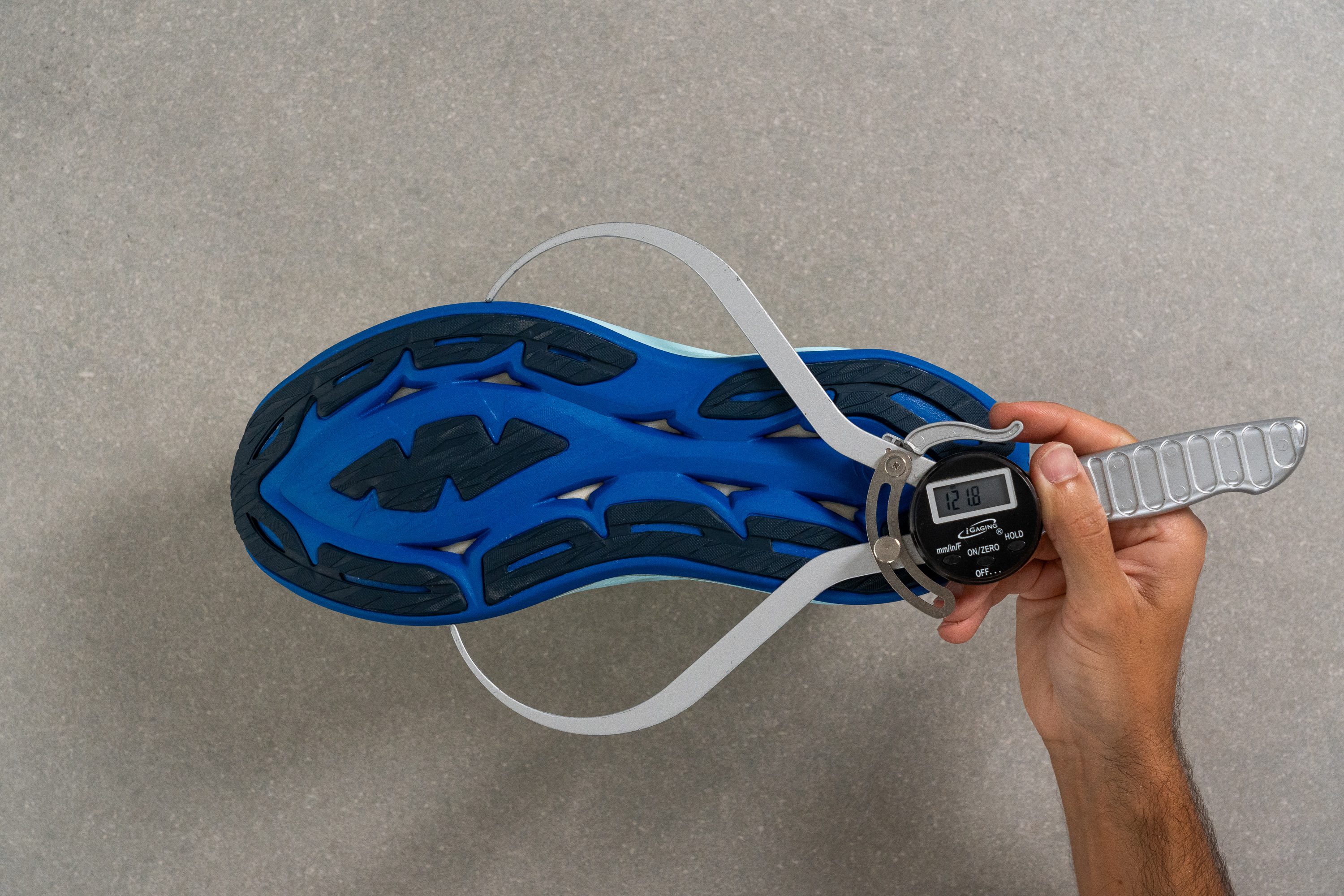
| Superblast | 121.8 mm |
| Average | 114.4 mm |
Midsole width - heel
With a wider-than-average heel measuring 96.6 mm, we also found that it offers ample stability for heel strikers. However, this shoe truly shines for those who are midfoot or forefoot strikers.
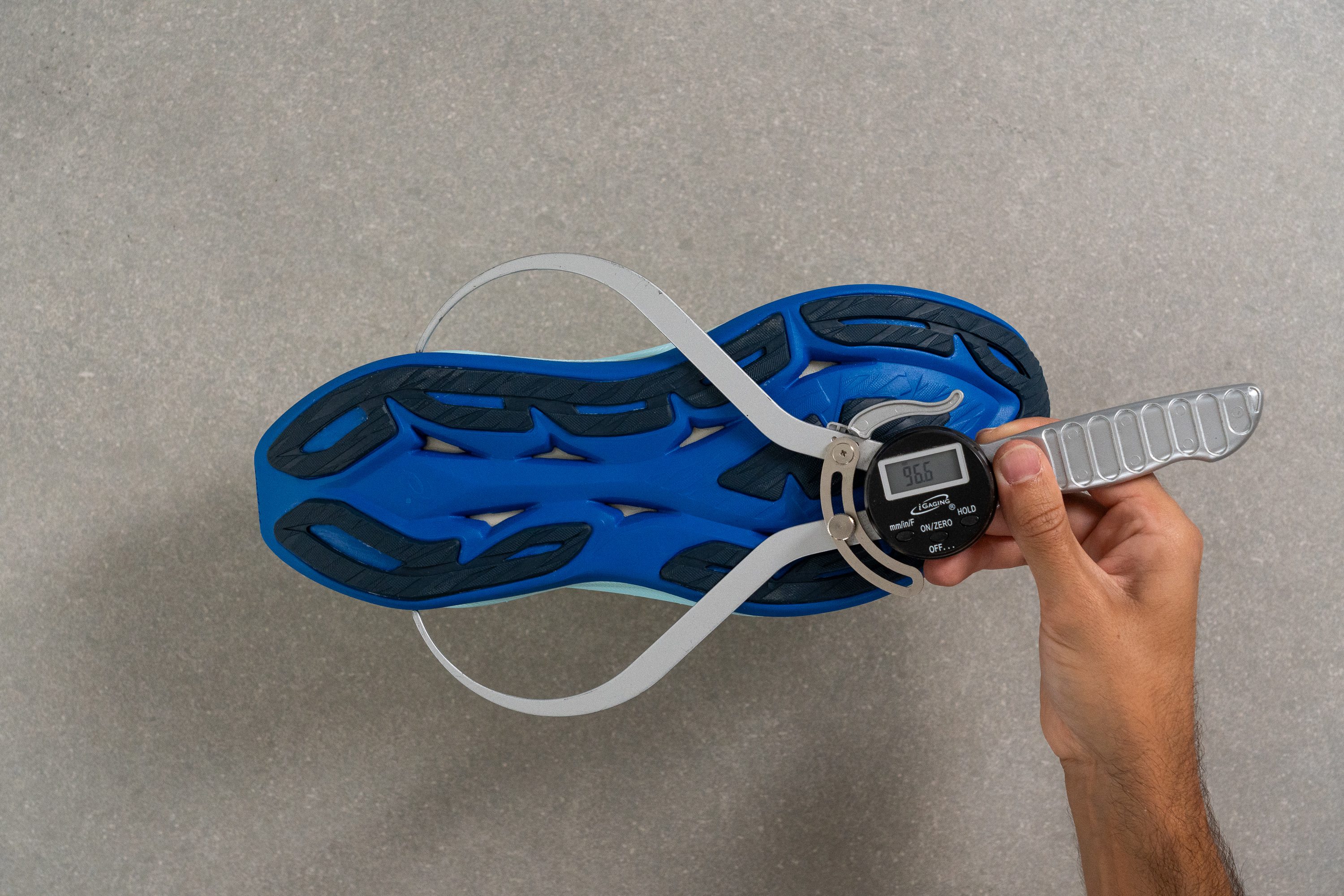
| Superblast | 96.6 mm |
| Average | 90.6 mm |
Durability
Toebox durability
Even though the Superblast is marketed as a daily training shoe, it leans more towards performance. This often translates to a very thin upper, similar to what we see in another super trainer, the Adidas Adizero Boston 12.
Our Dremel test revealed the upper's weakness, leading us to give it a 1/5 score.
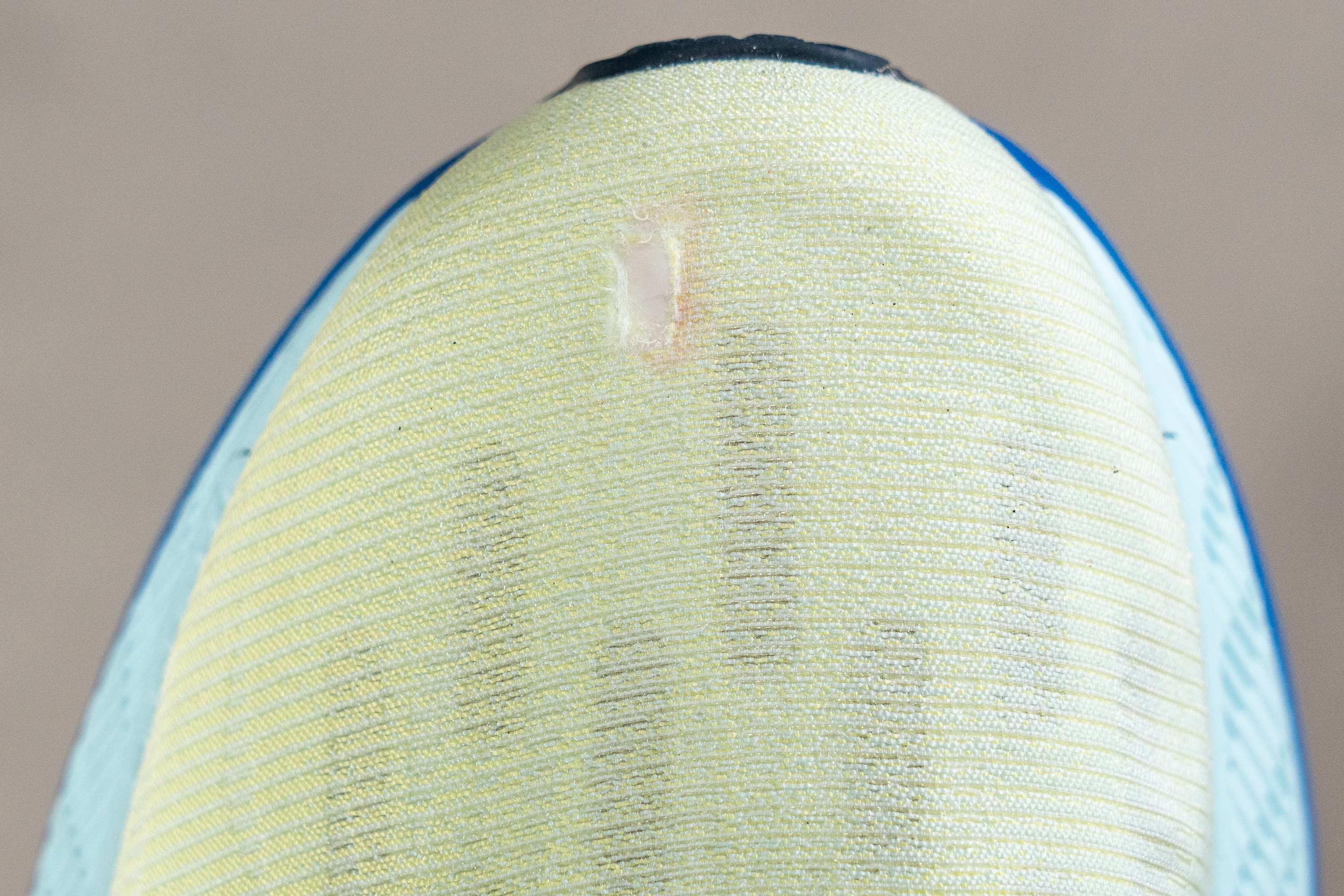
| Superblast | 1 |
| Average | 2.6 |
Heel padding durability
The heel area of the shoe is designed with a soft fabric and a generous amount of padding. Typically, in our lab tests, such a combination results in a lower score.
In this evaluation, we gave it a 2/5. Though not an impressive rating, we believe it won't cause any issues for most runners throughout the shoe's lifespan.
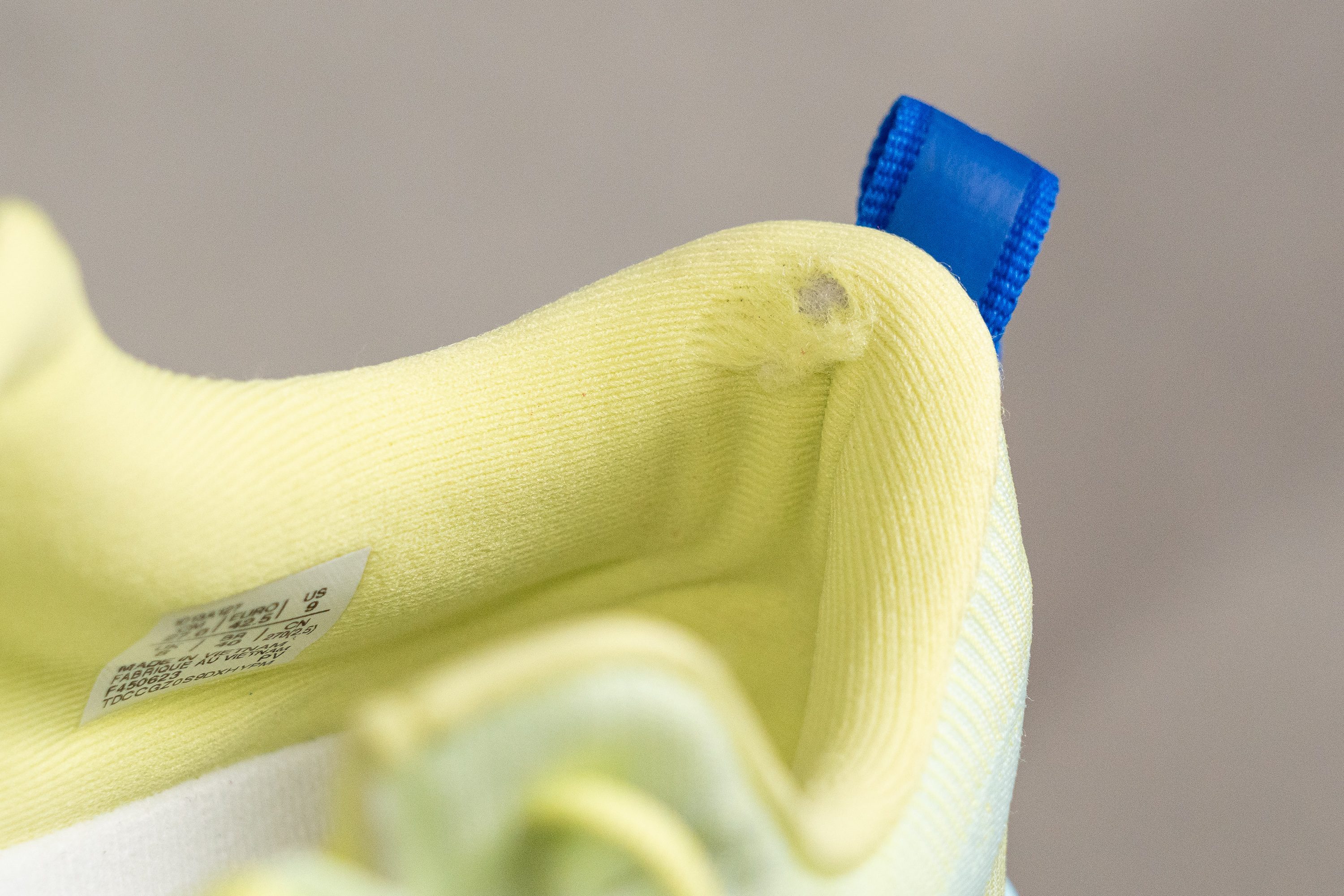
| Superblast | 2 |
| Average | 3.4 |
Outsole durability
Impressively, it appears that the AHARPLUS rubber truly lives up to the hype.
After conducting our Dremel test on the outsole, we assessed the wear and found a mere 0.6 mm of damage.
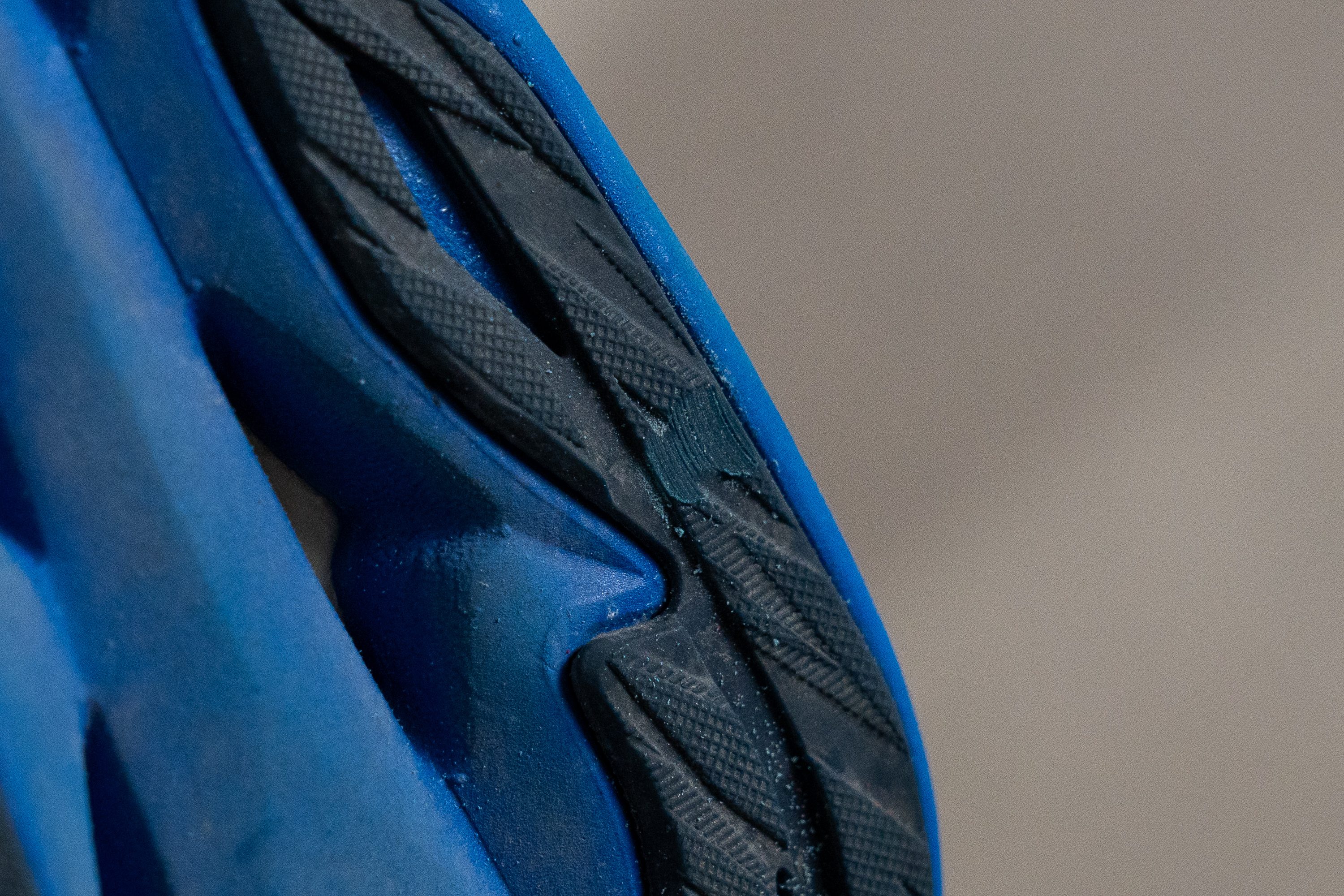
| Superblast | 0.6 mm |
| Average | 1.1 mm |
Outsole thickness
The outstanding durability is crucial, especially since, in their quest to keep the shoe incredibly lightweight, ASICS opted for a slim 2.6 mm thickness.
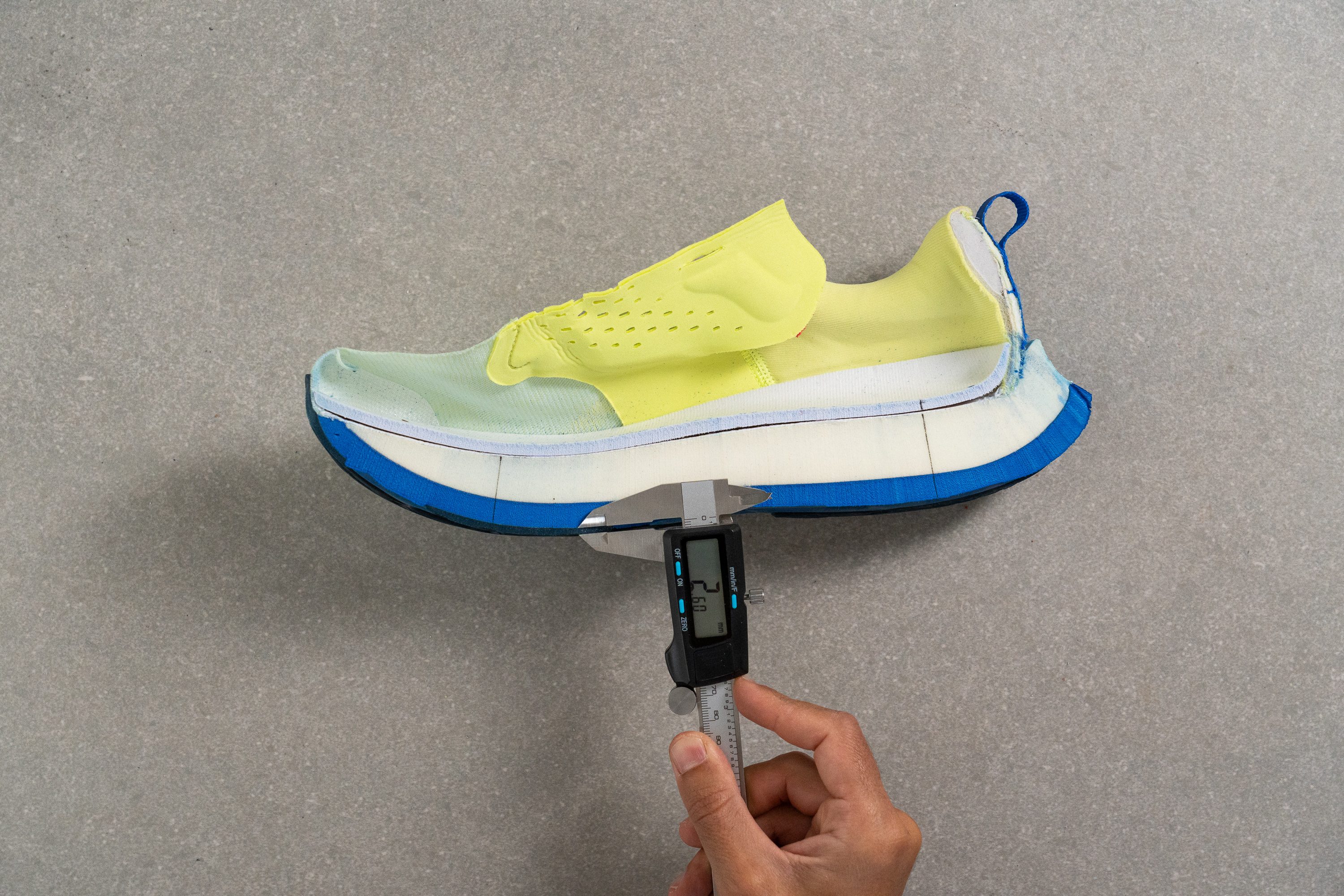
| Superblast | 2.6 mm |
| Average | 3.2 mm |
Misc
Insole thickness
We found that the insole measures 4.2 mm. While this is slightly below what we usually see, it performs effectively and helps reduce the shoe's overall weight.
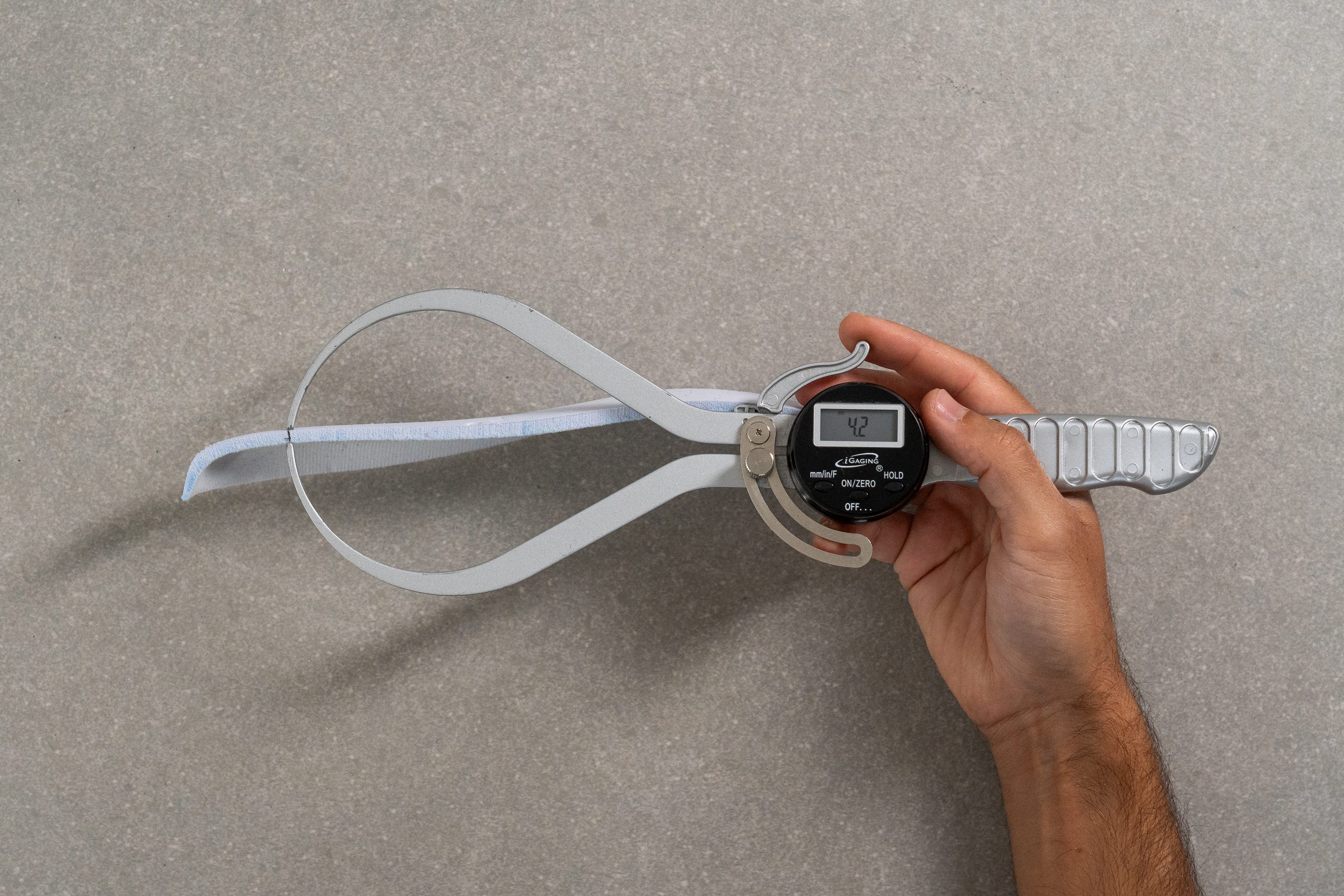
| Superblast | 4.2 mm |
| Average | 4.5 mm |
Removable insole
You can easily take out the insole, allowing you to use different orthotics or insoles from other models.
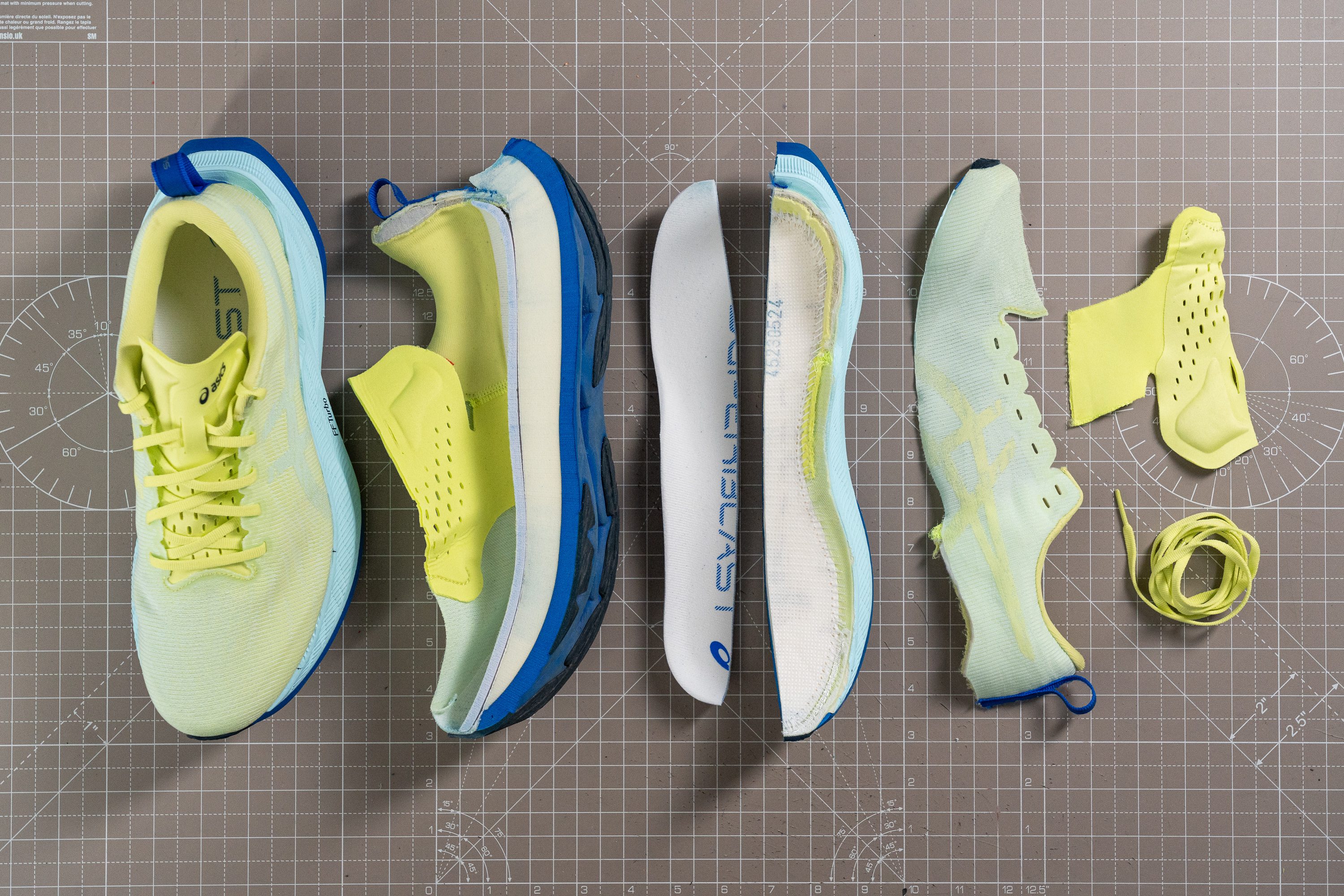
| Superblast | Yes |
Midsole softness in cold (%)
The shoe's feel remained consistent in cold temperatures. After 20 minutes in the freezer, we found that it maintained a softness of 26.4 HA.
With just a 12.8% increase, this shoe impressively outshines many others on the market. It's the kind of top-notch performance we anticipate from the priciest training shoe out there.
But wait, how does it manage to excel in chilly conditions? The secret lies in its FF Turbo midsole. This PEBA-based foam is renowned for its exceptional behavior in cold temperatures.
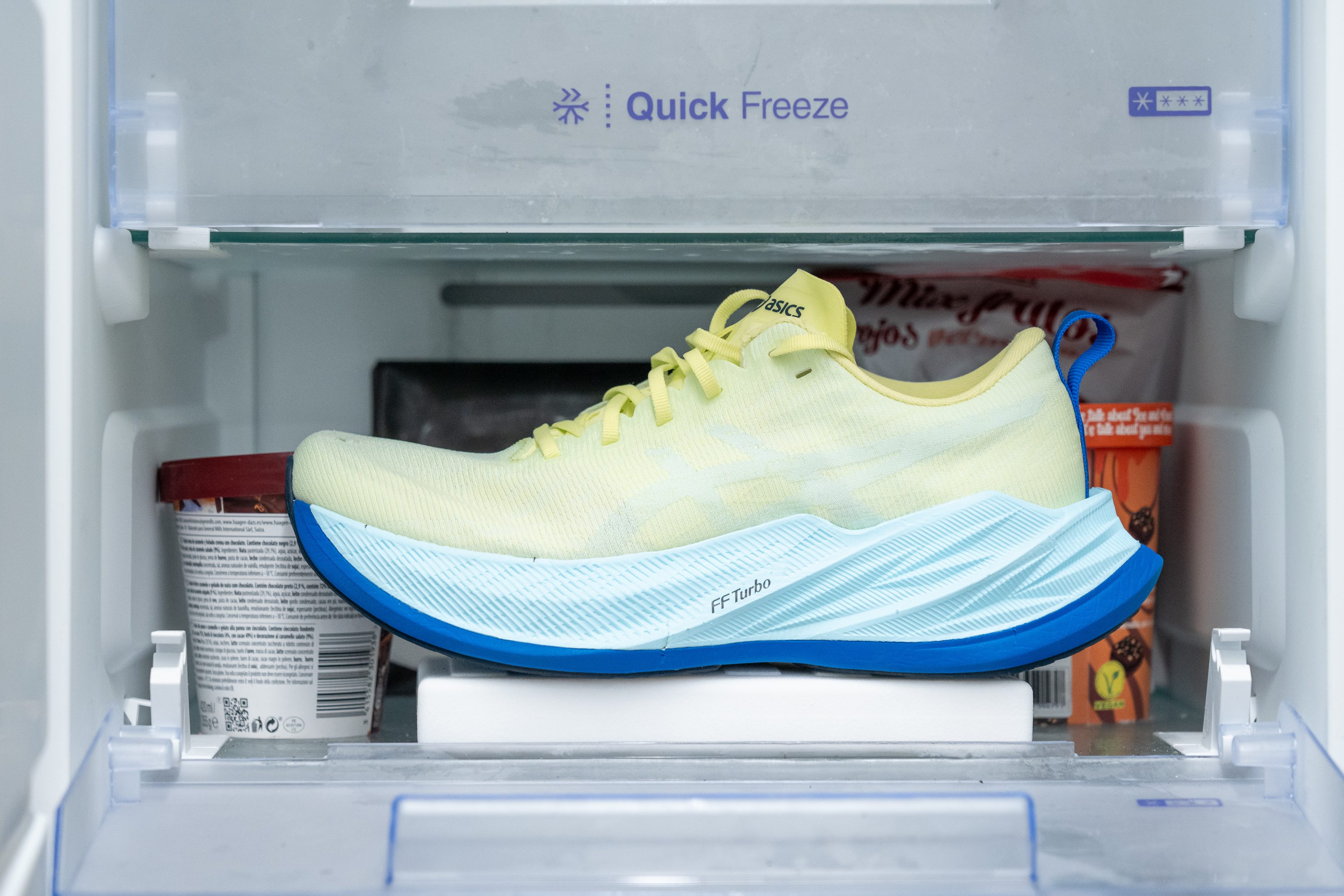
| Superblast | 13% |
| Average | 24% |
Reflective elements
While ASICS added some reflective details on the heel tab, we feel they barely meet the mark and don't offer enough visibility for nighttime running.
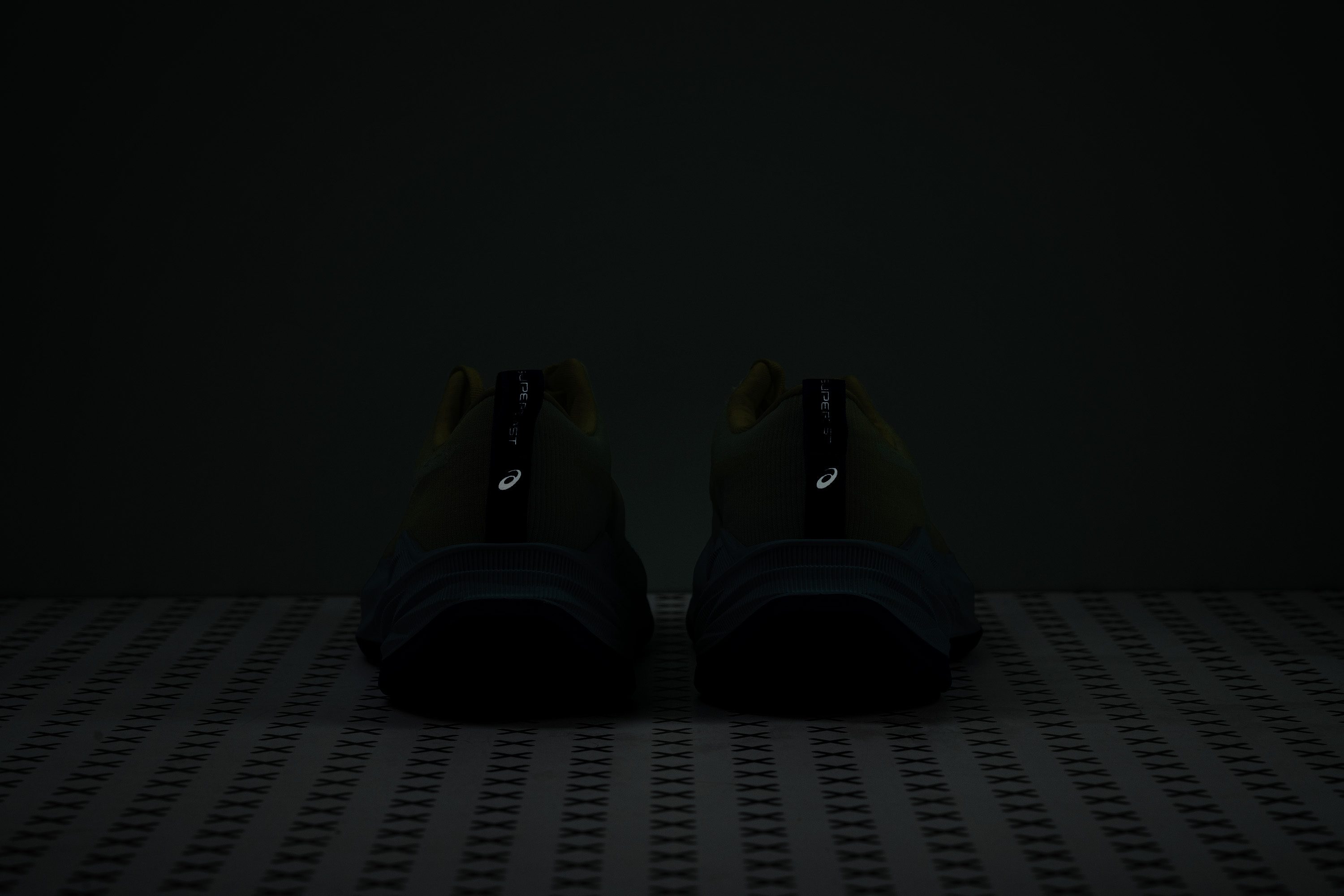
| Superblast | Yes |
Tongue padding
While a 6-mm or 7-mm tongue might have been fantastic, it's not practical when aiming for minimal weight.
In the Superblast, there's a paper-thin 1.5-mm tongue reminiscent of racing shoes. Still, we discovered that even during longer runs, there was no discomfort on our instep.
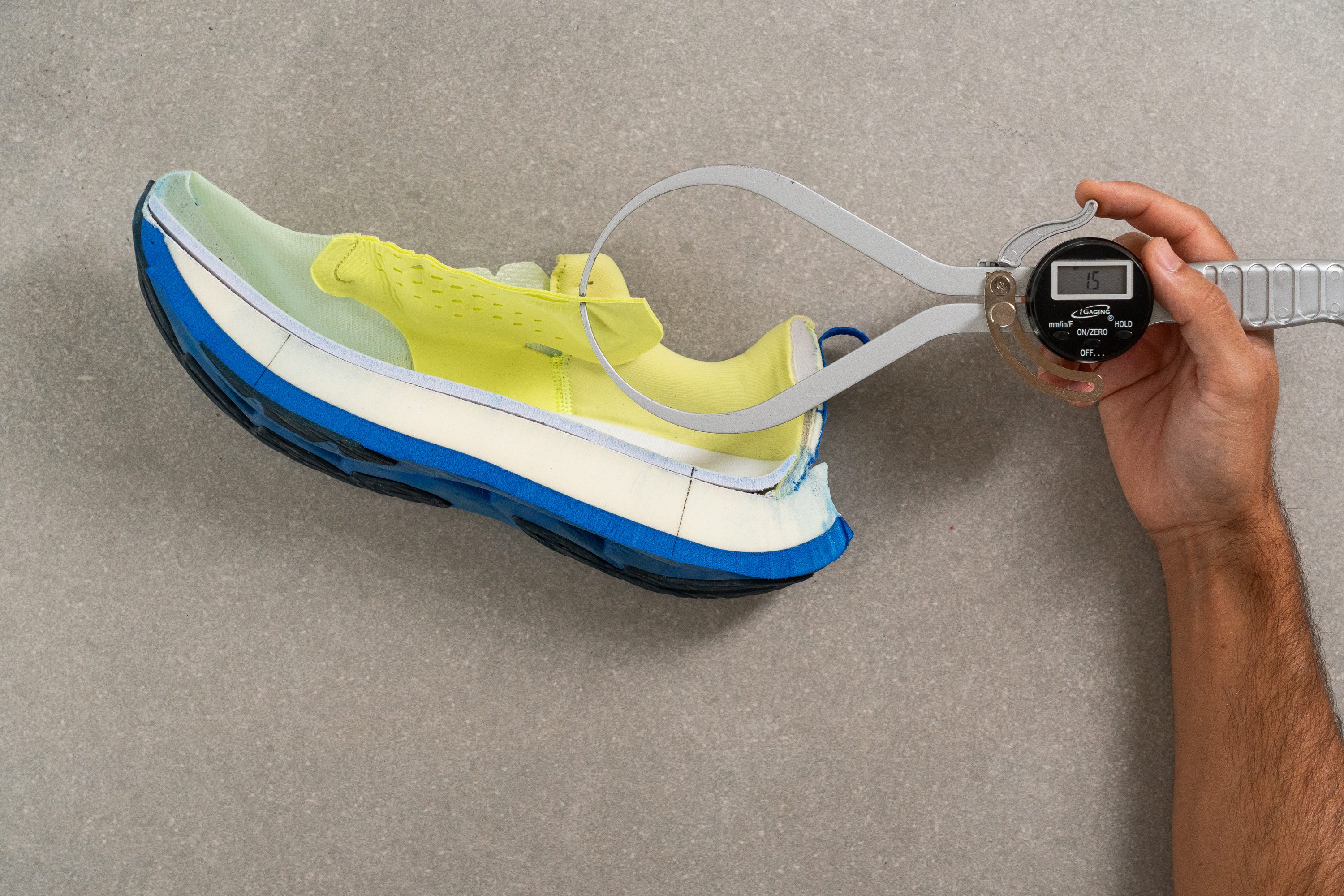
| Superblast | 1.5 mm |
| Average | 5.7 mm |
Tongue: gusset type
The shoe provides an outstanding lockdown, and we believe a significant reason for this is the semi-gusseted tongue.
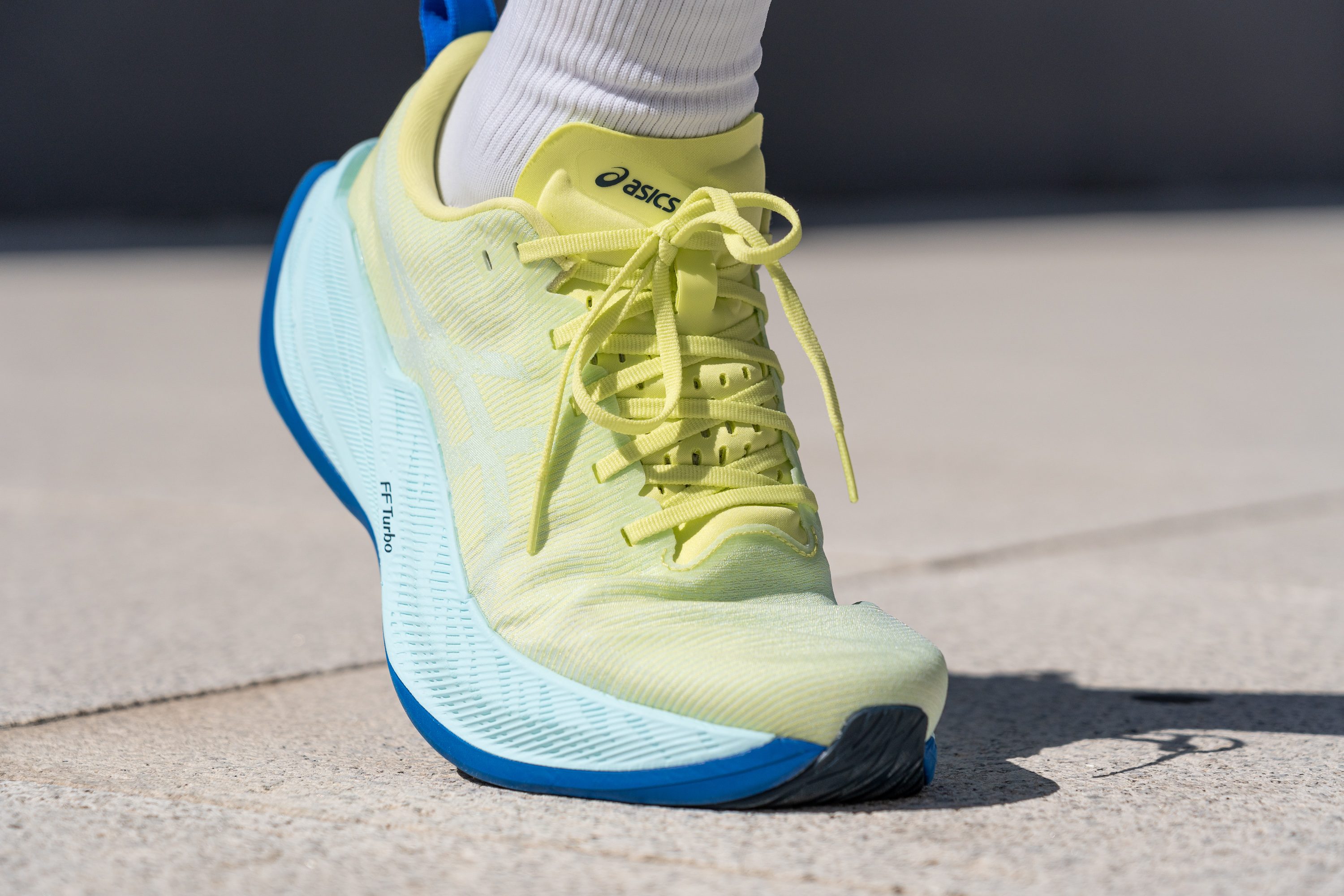
We found that it's comfortably positioned without being intrusive, ensuring the tongue stays in place even when running at high speeds.
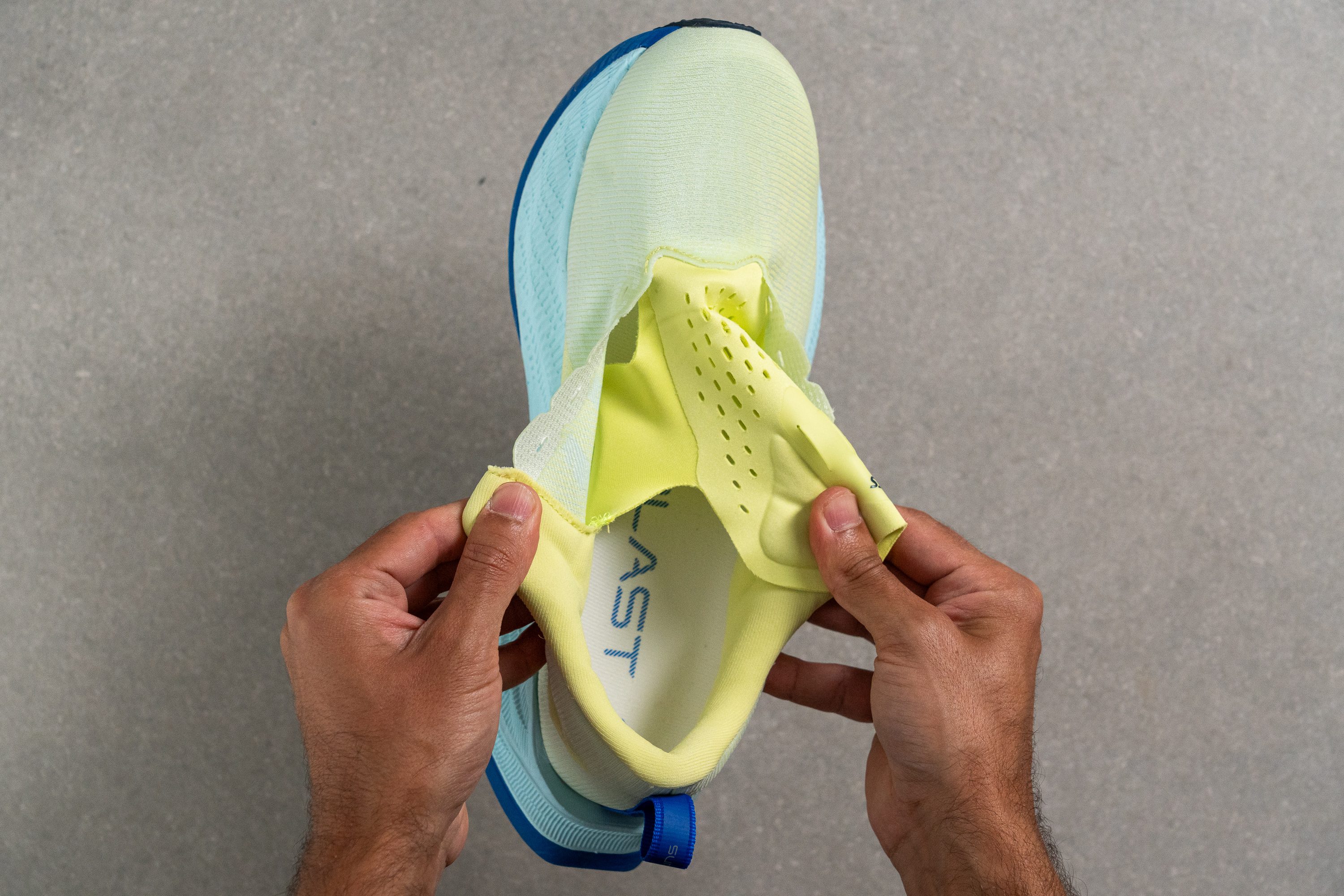
| Superblast | Both sides (semi) |
Heel tab
We liked the finger-loop heel tab. Not only does it look stylish, but it also makes slipping the shoe onto our feet much easier.
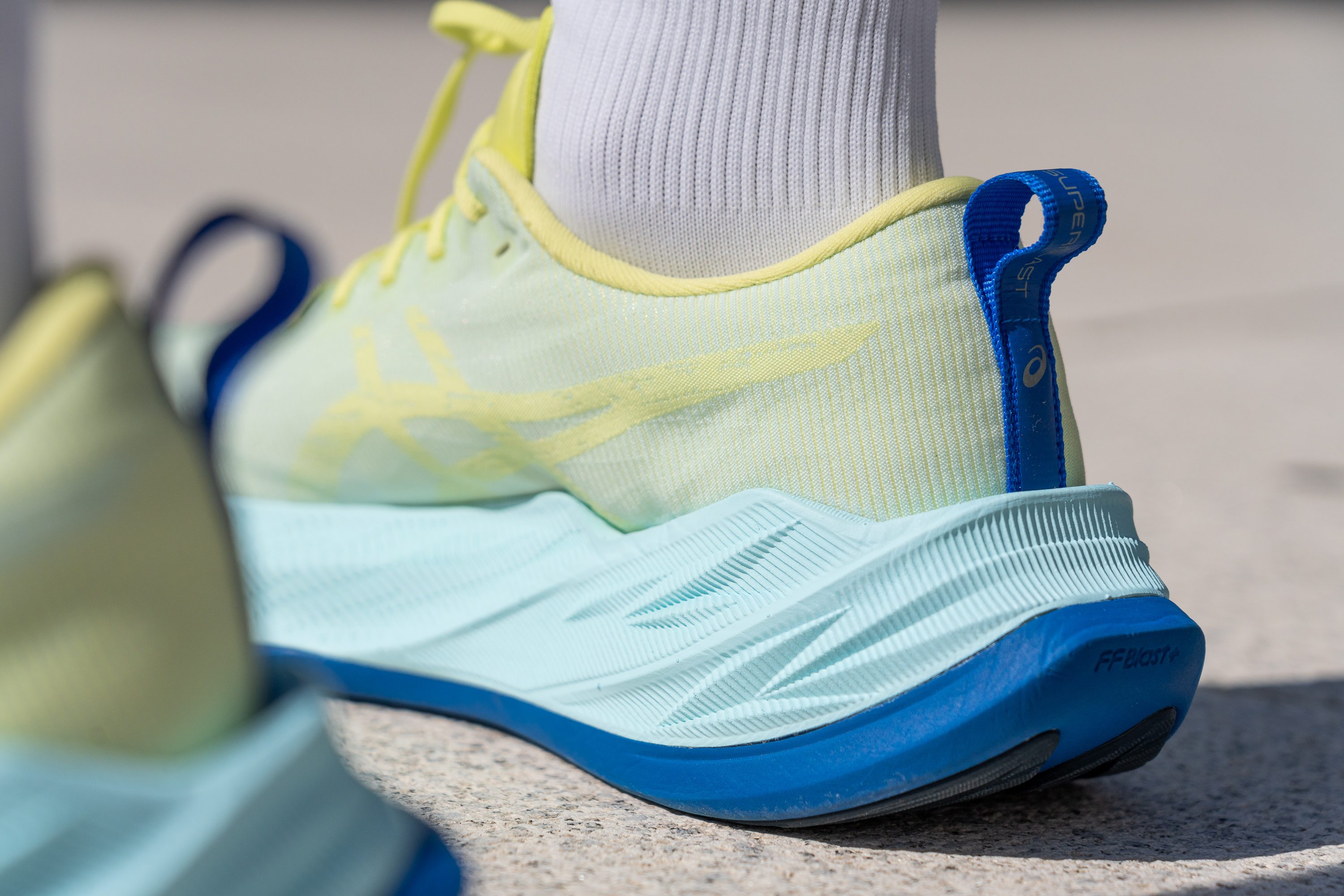
| Superblast | Finger loop |

